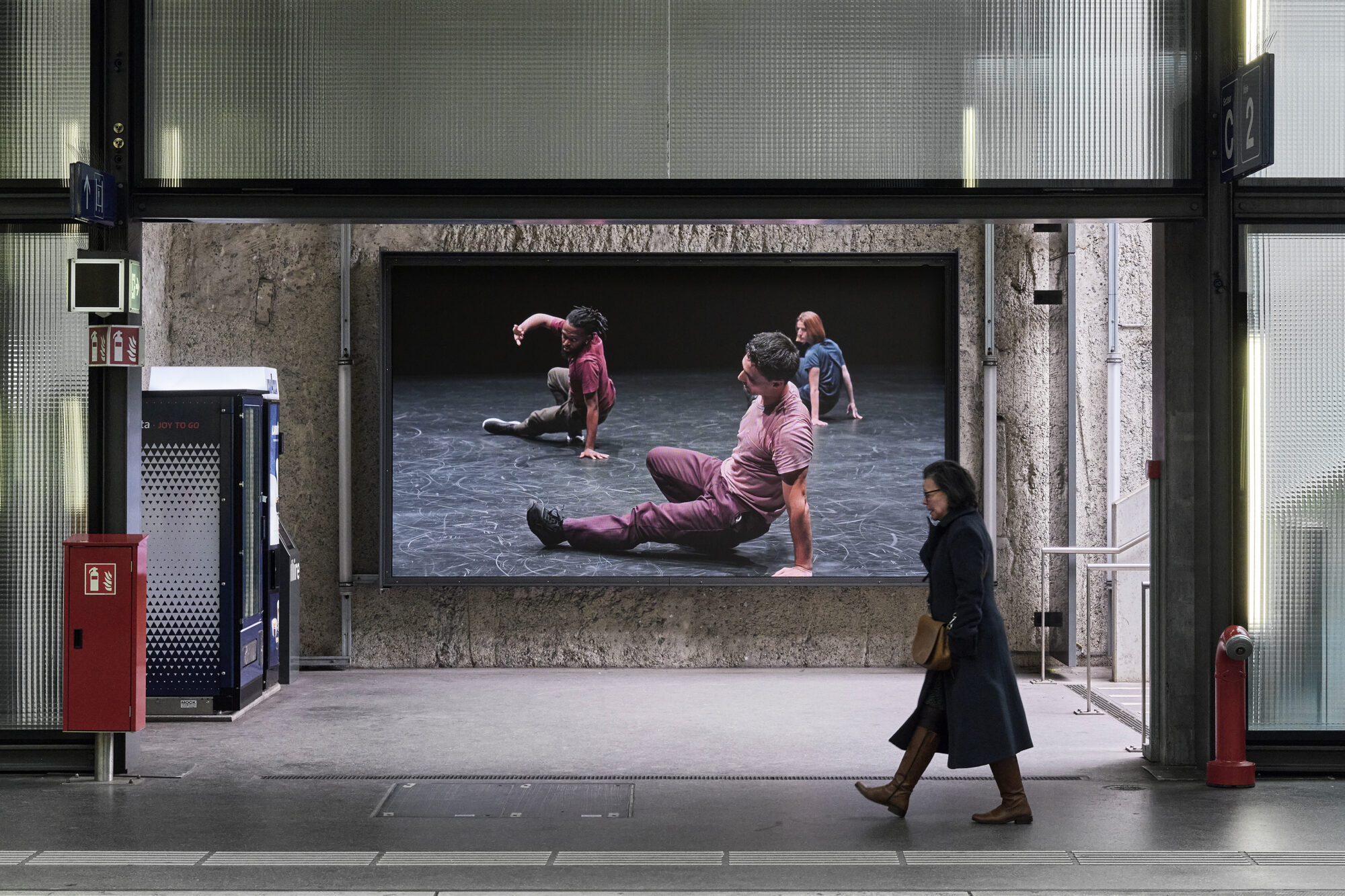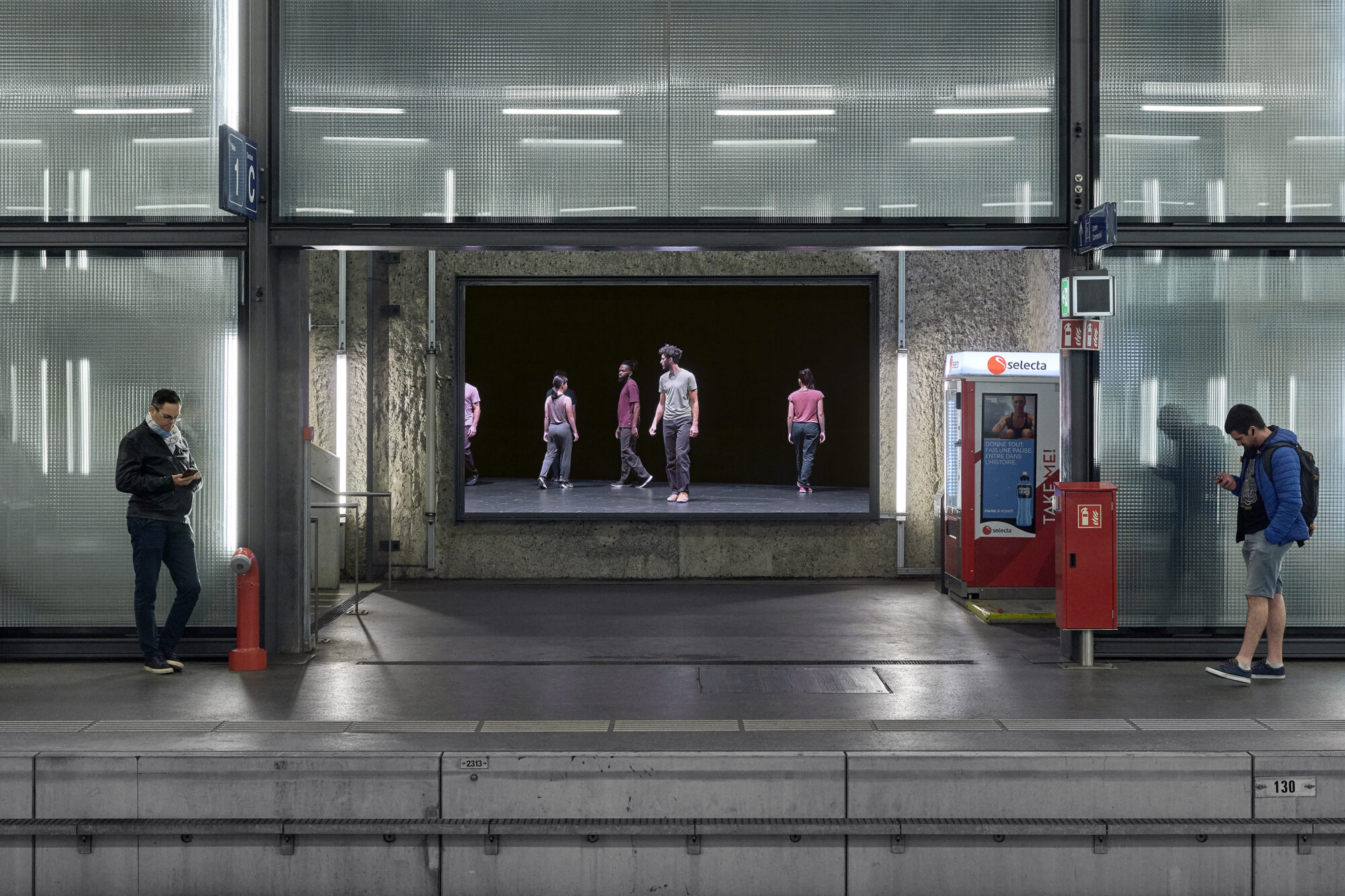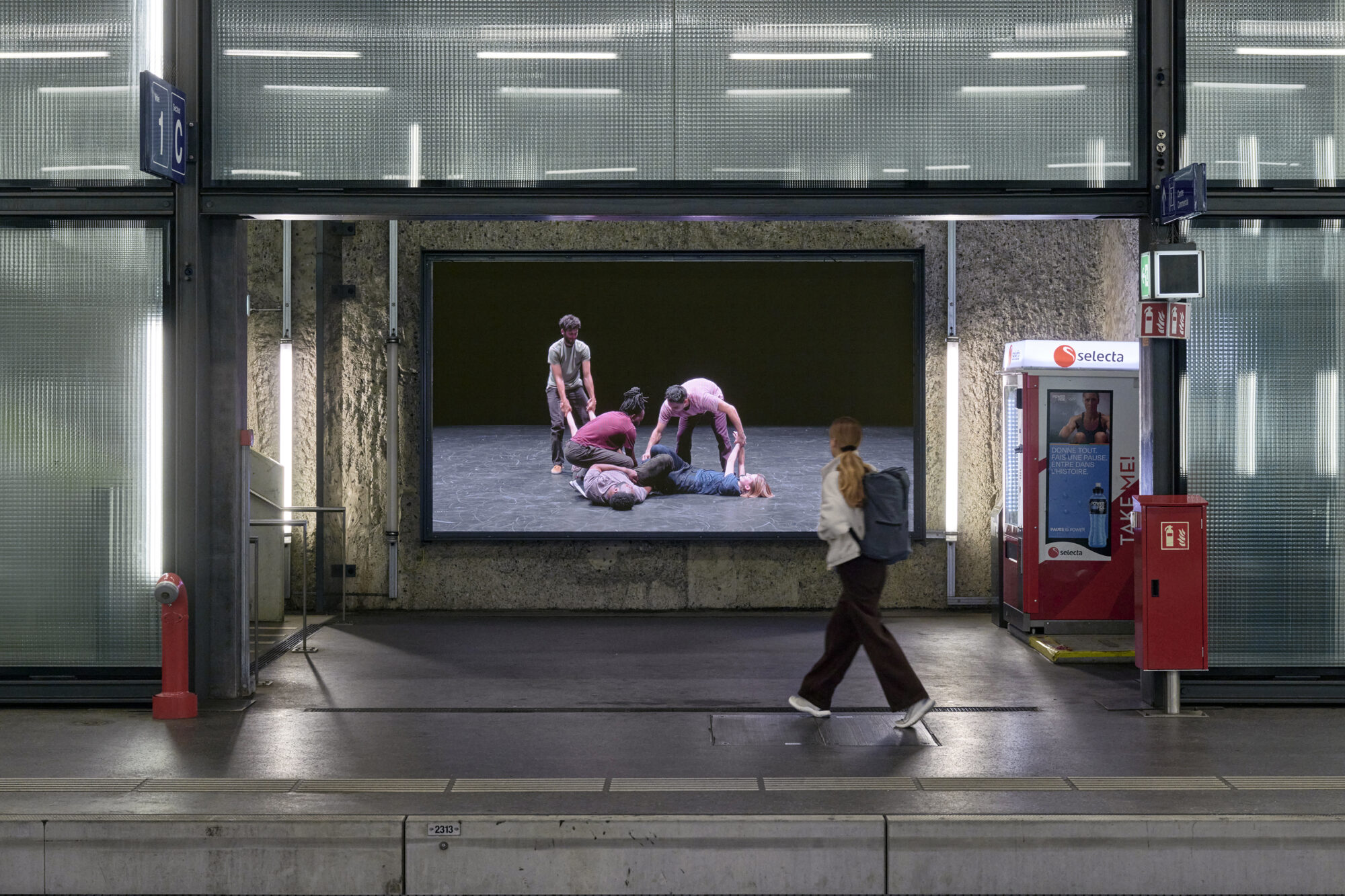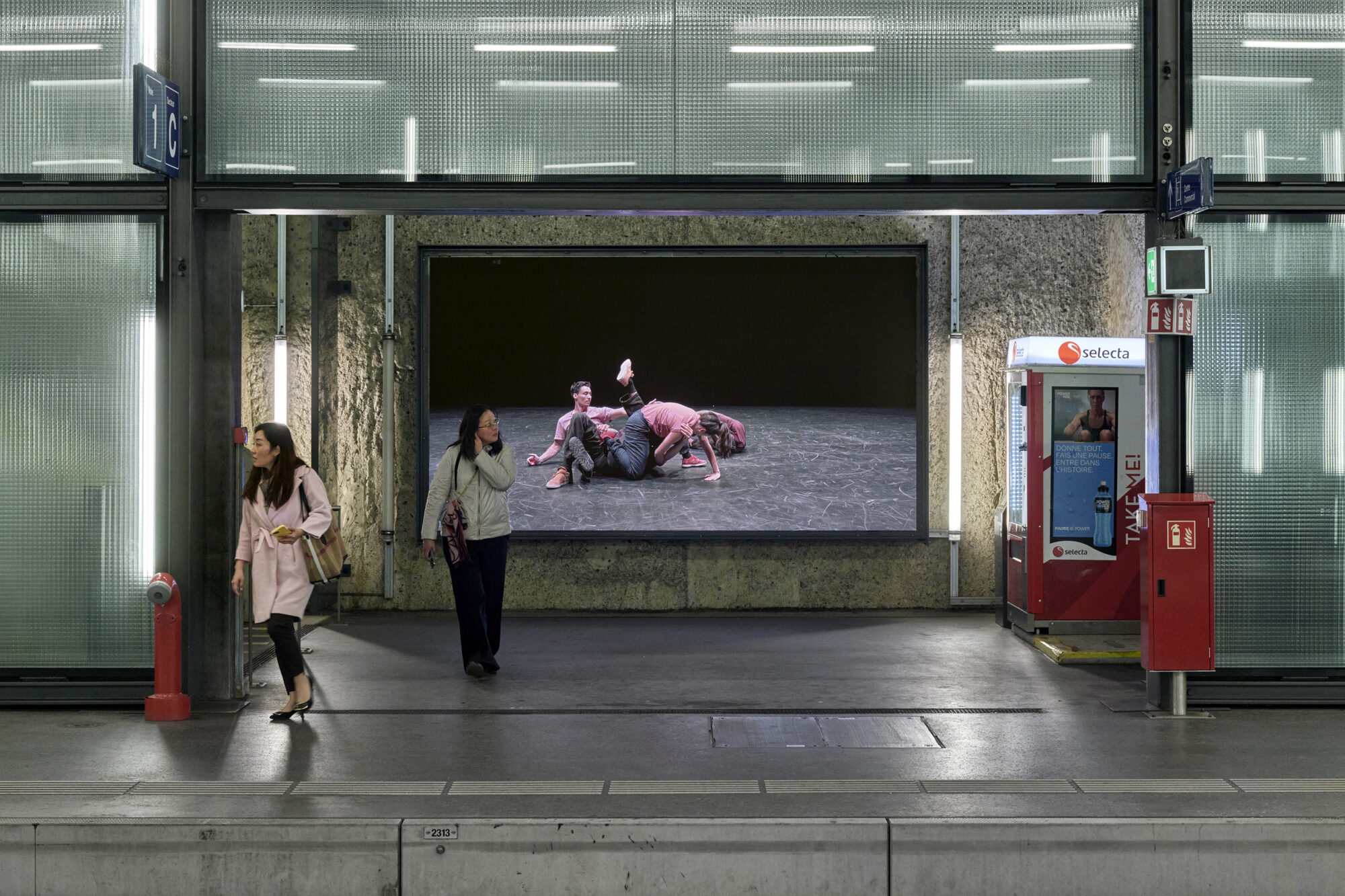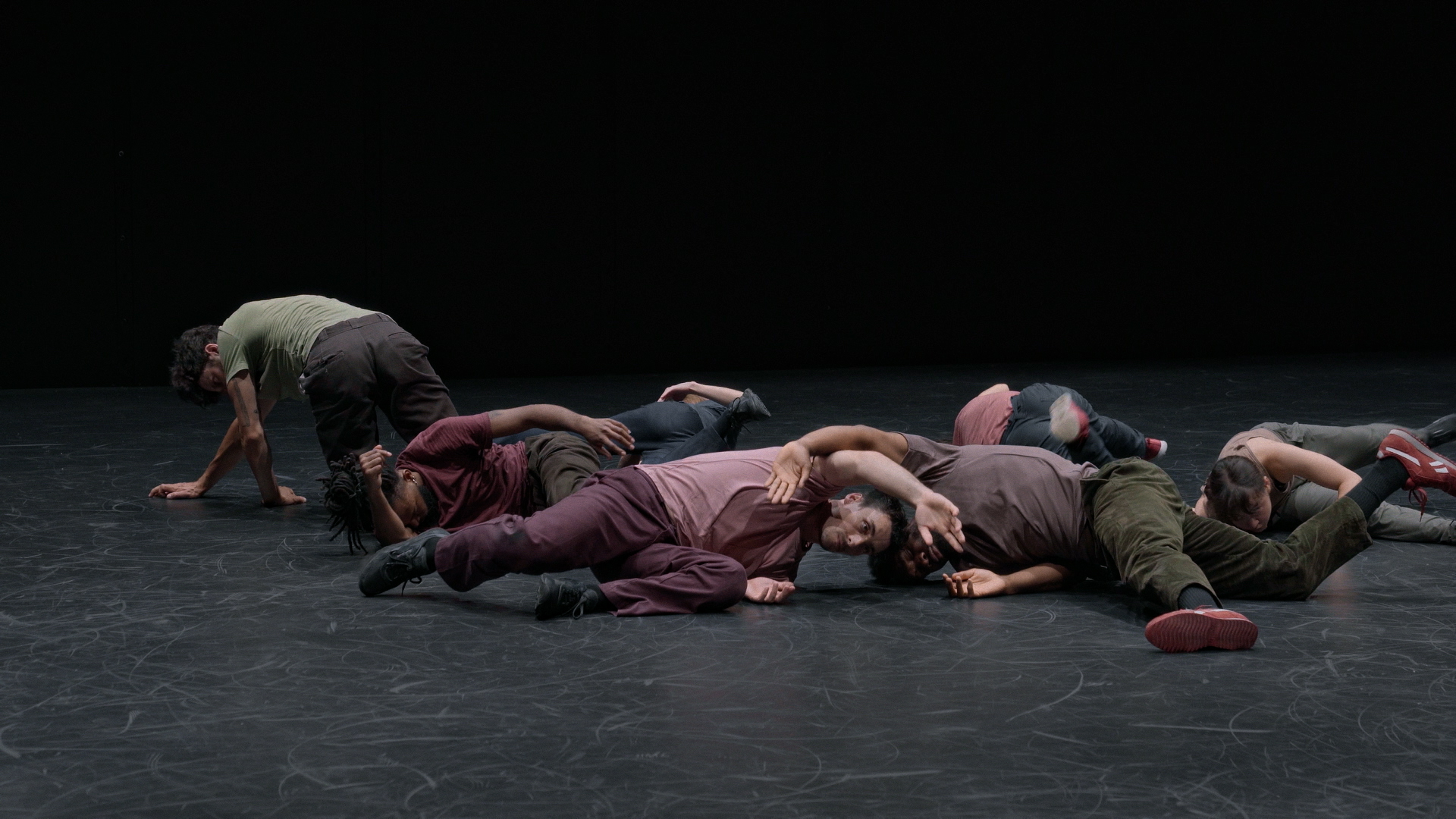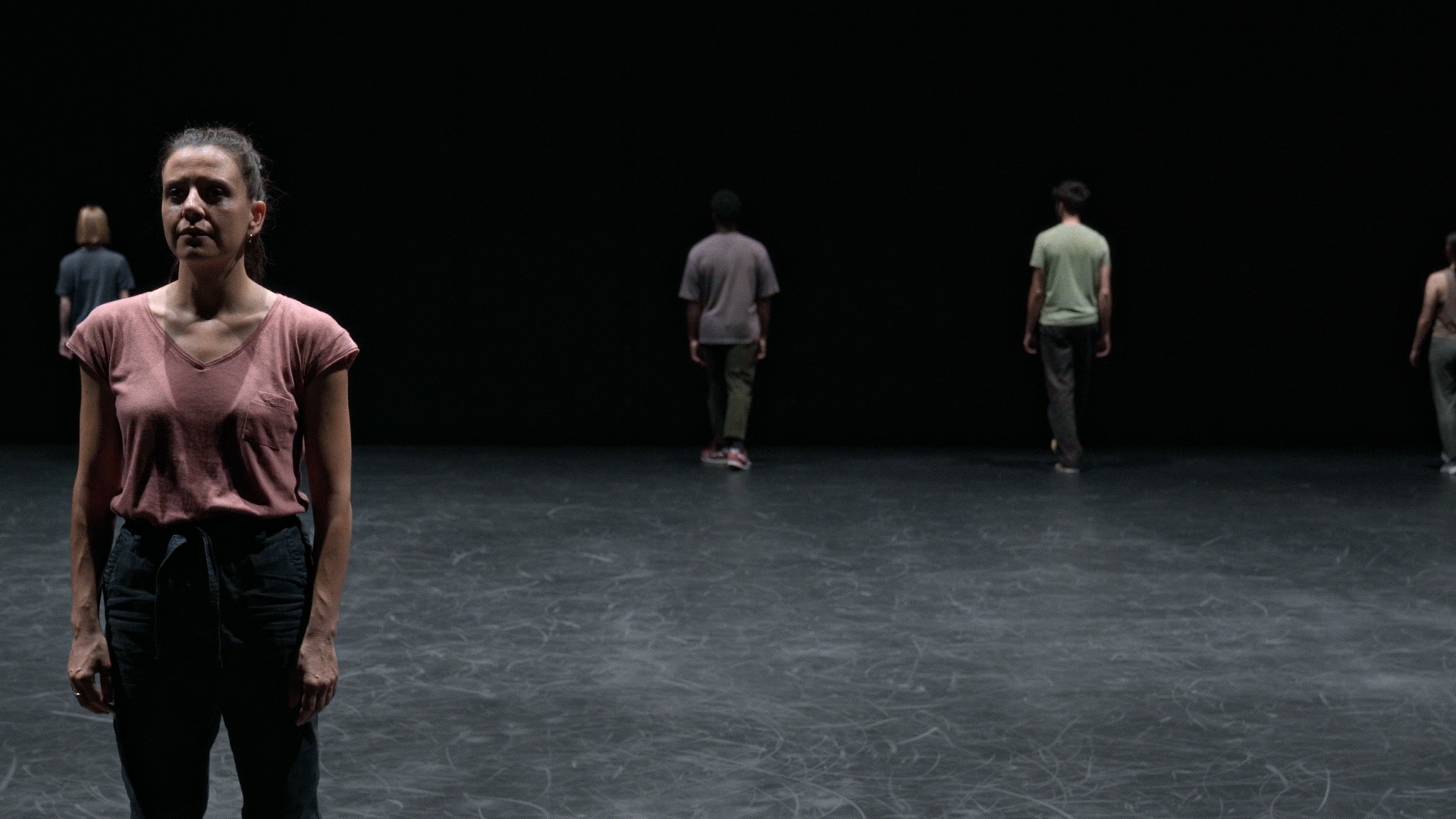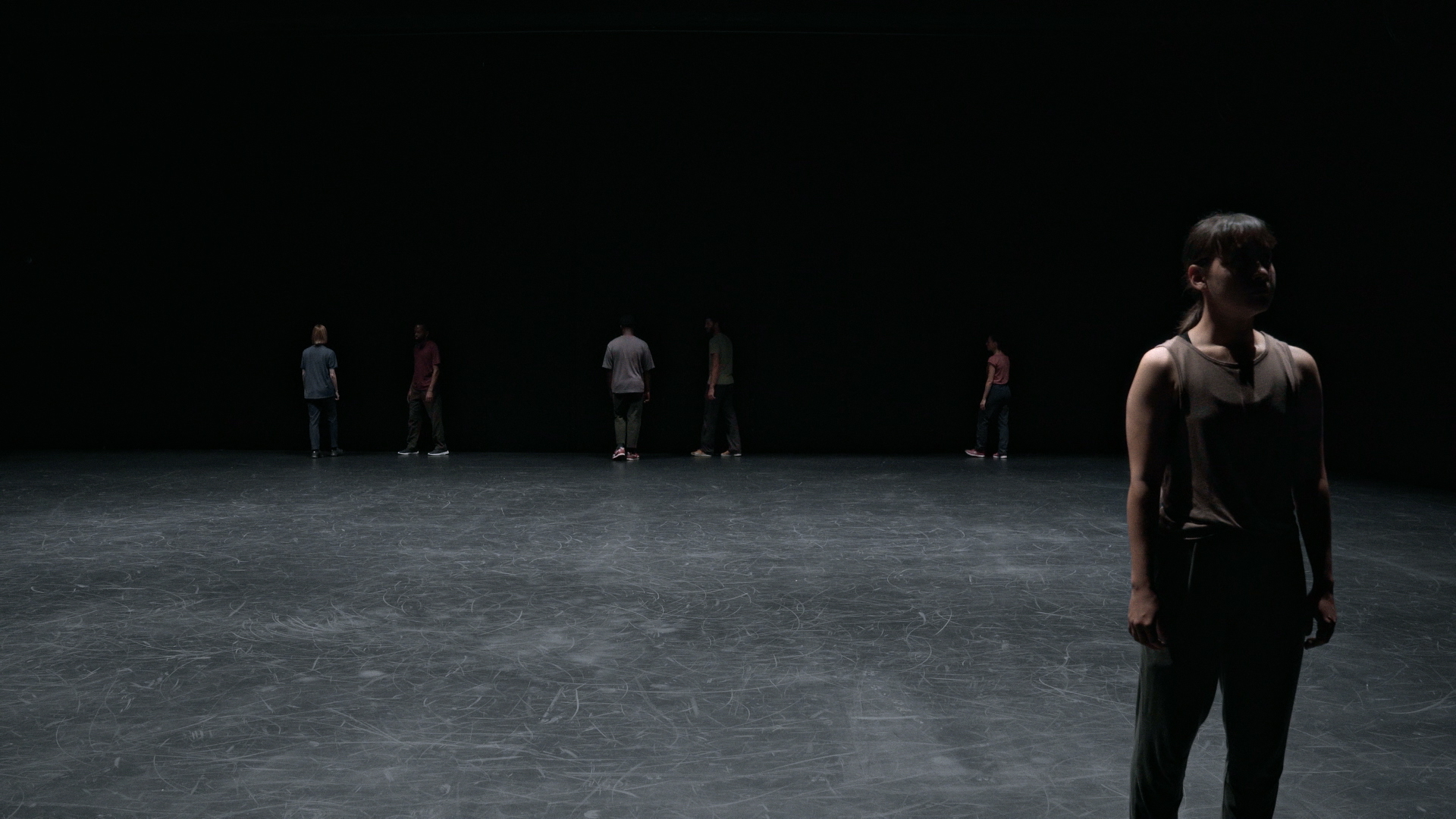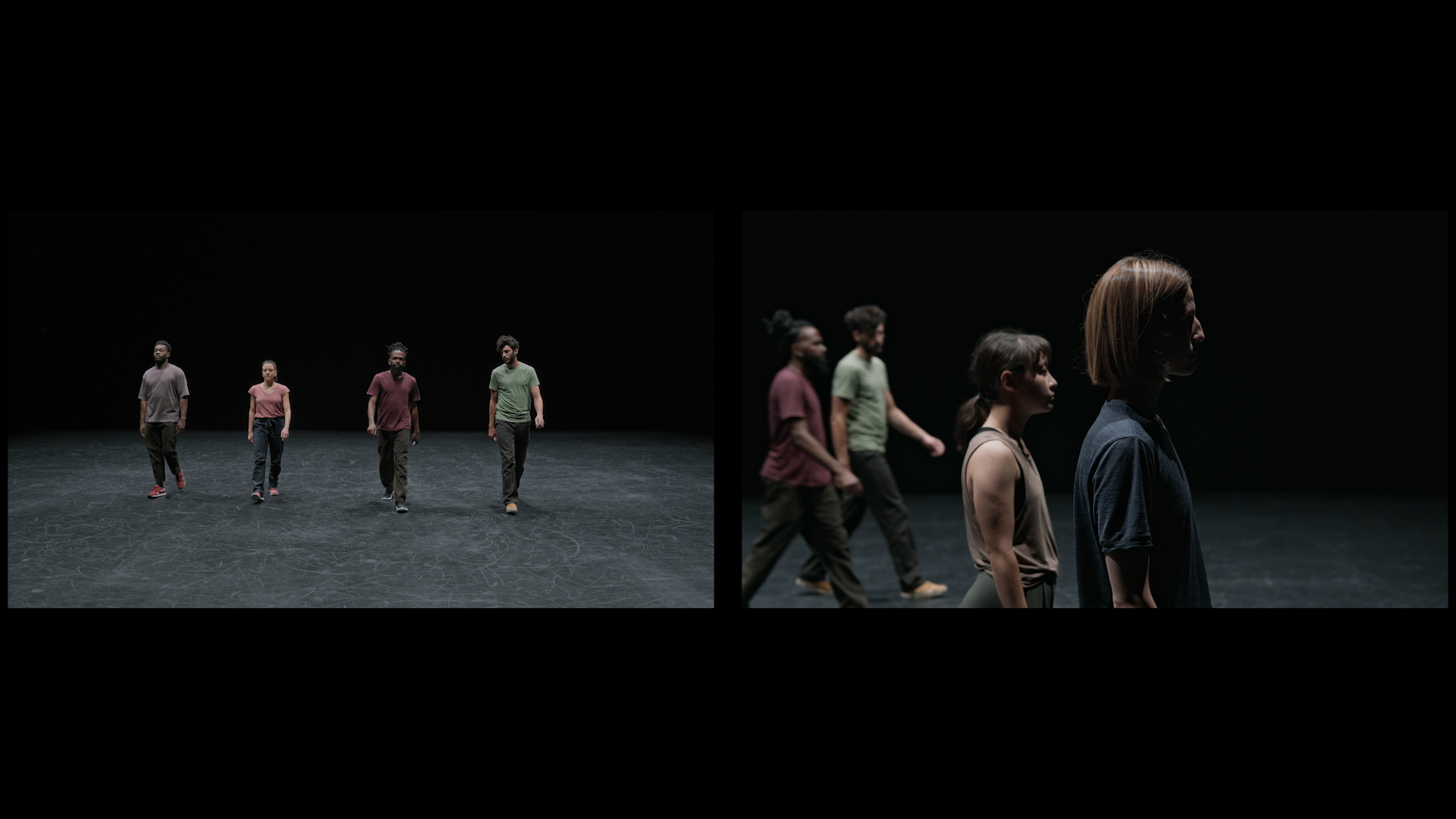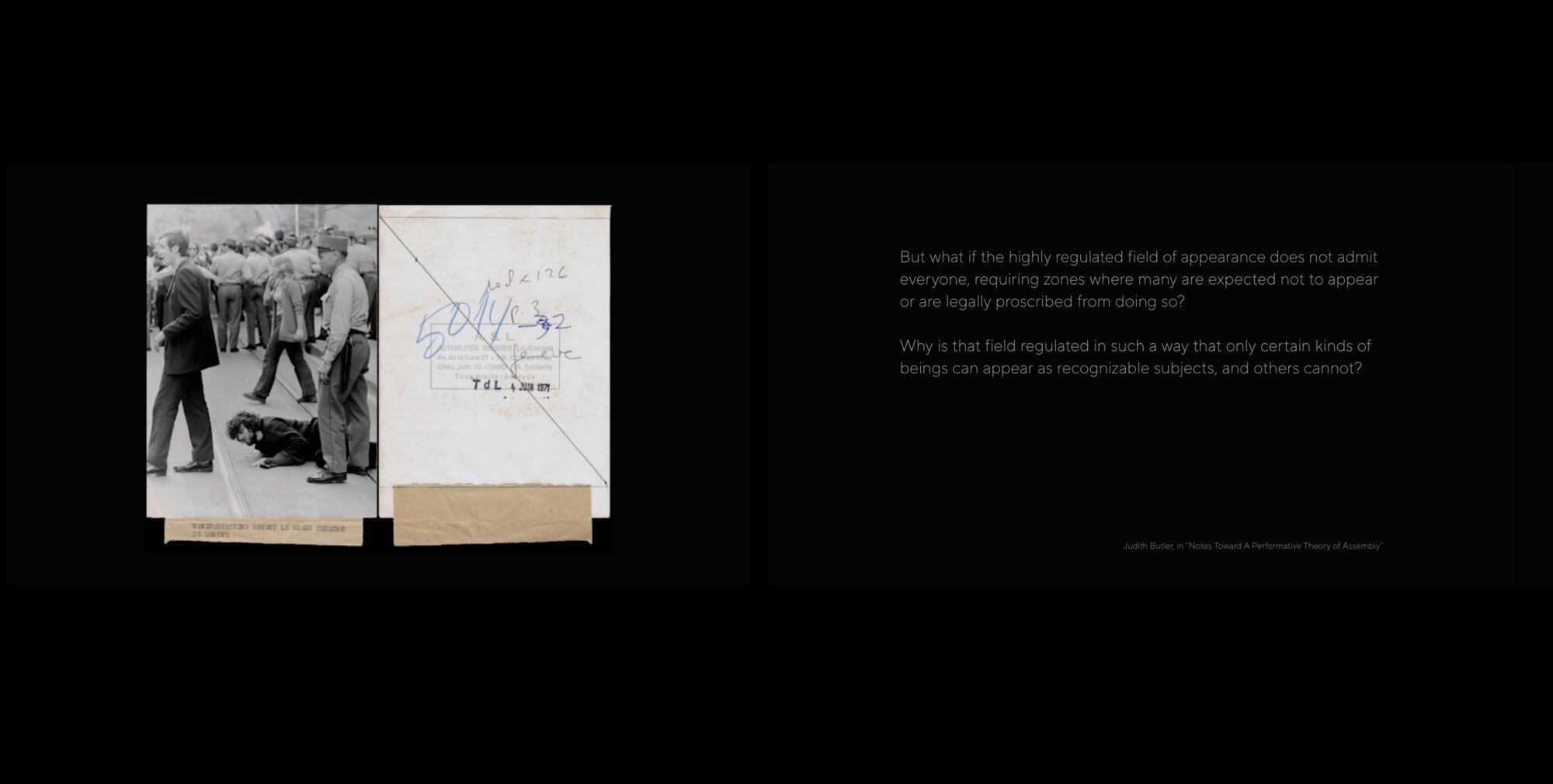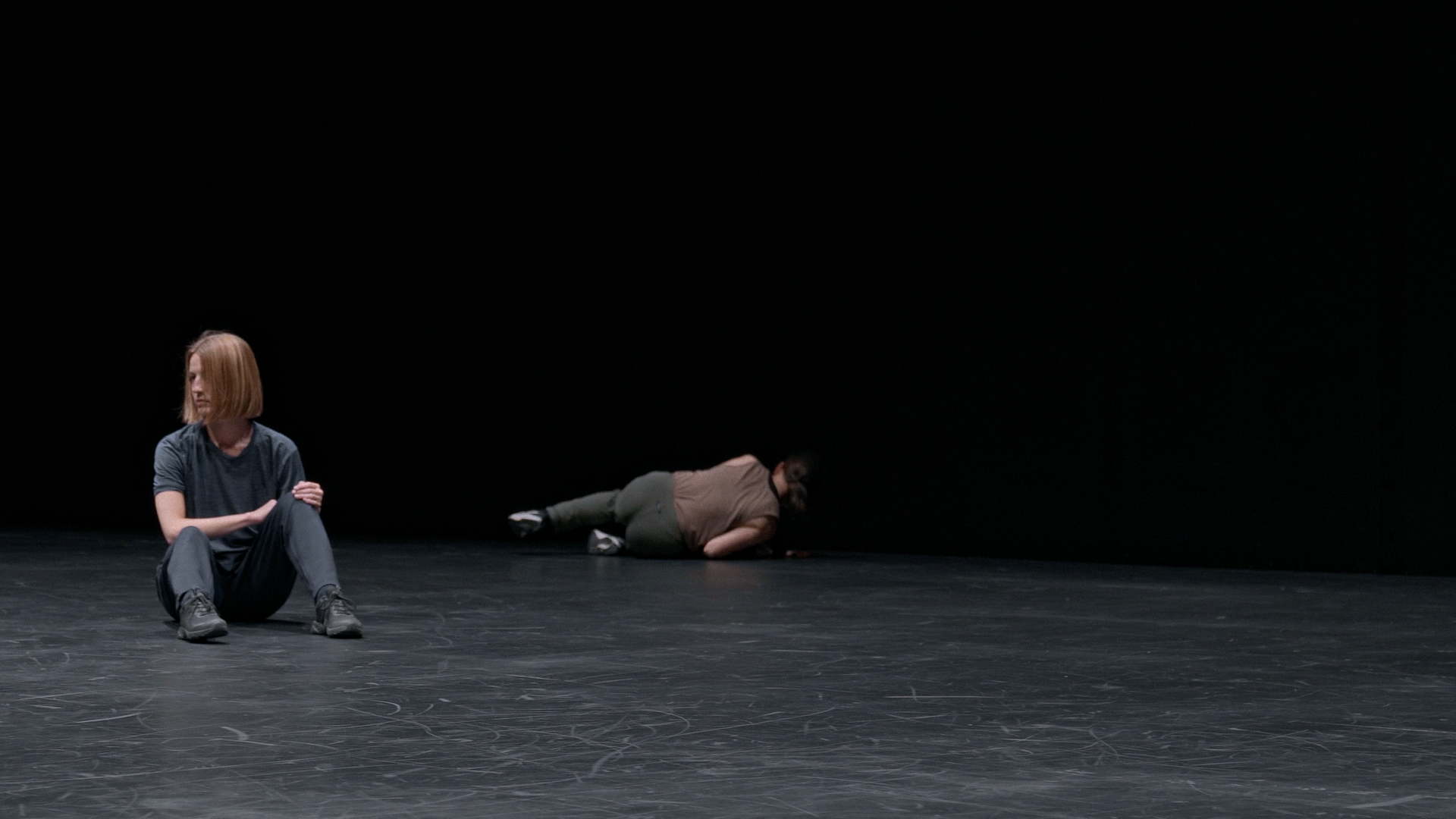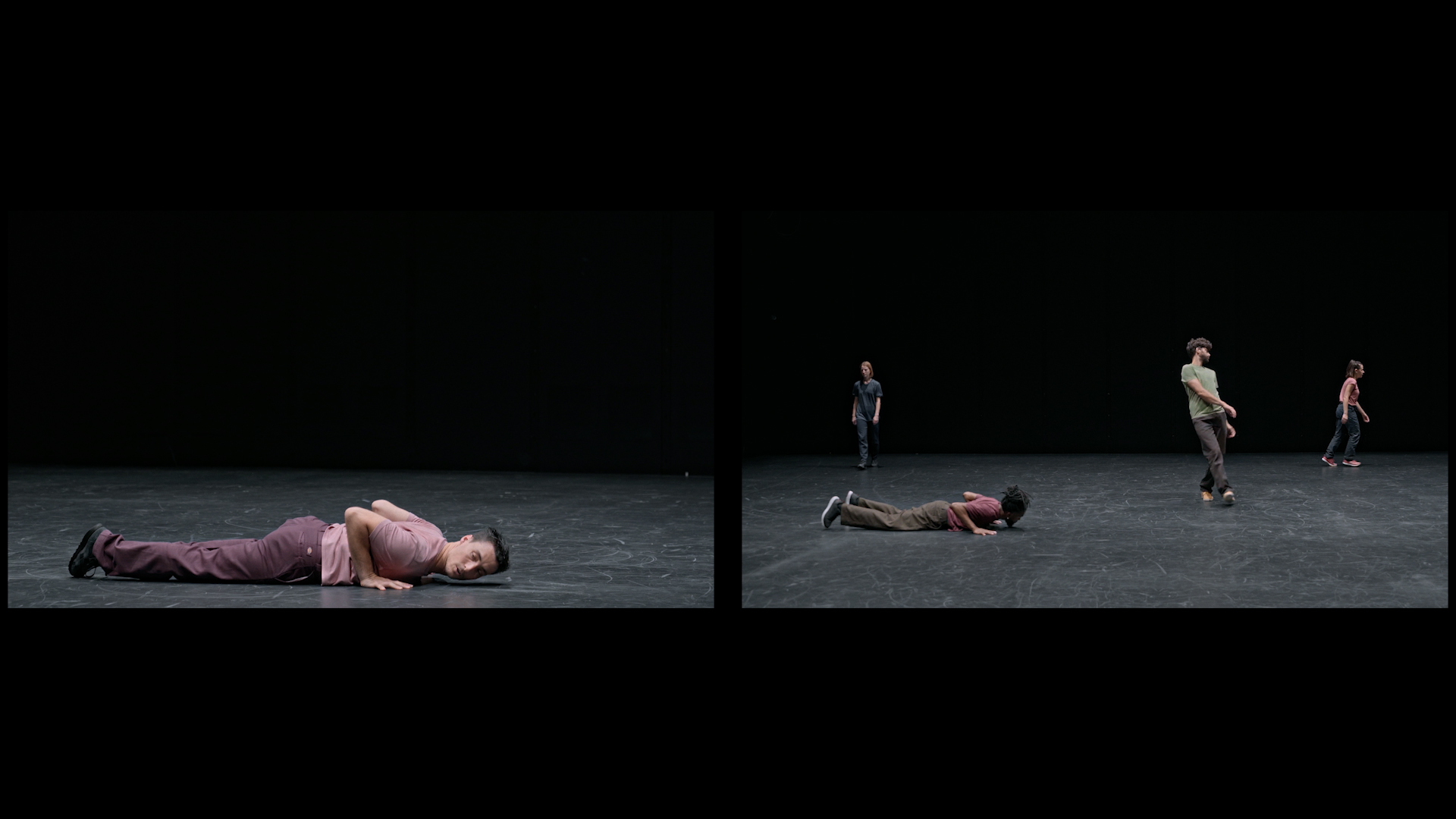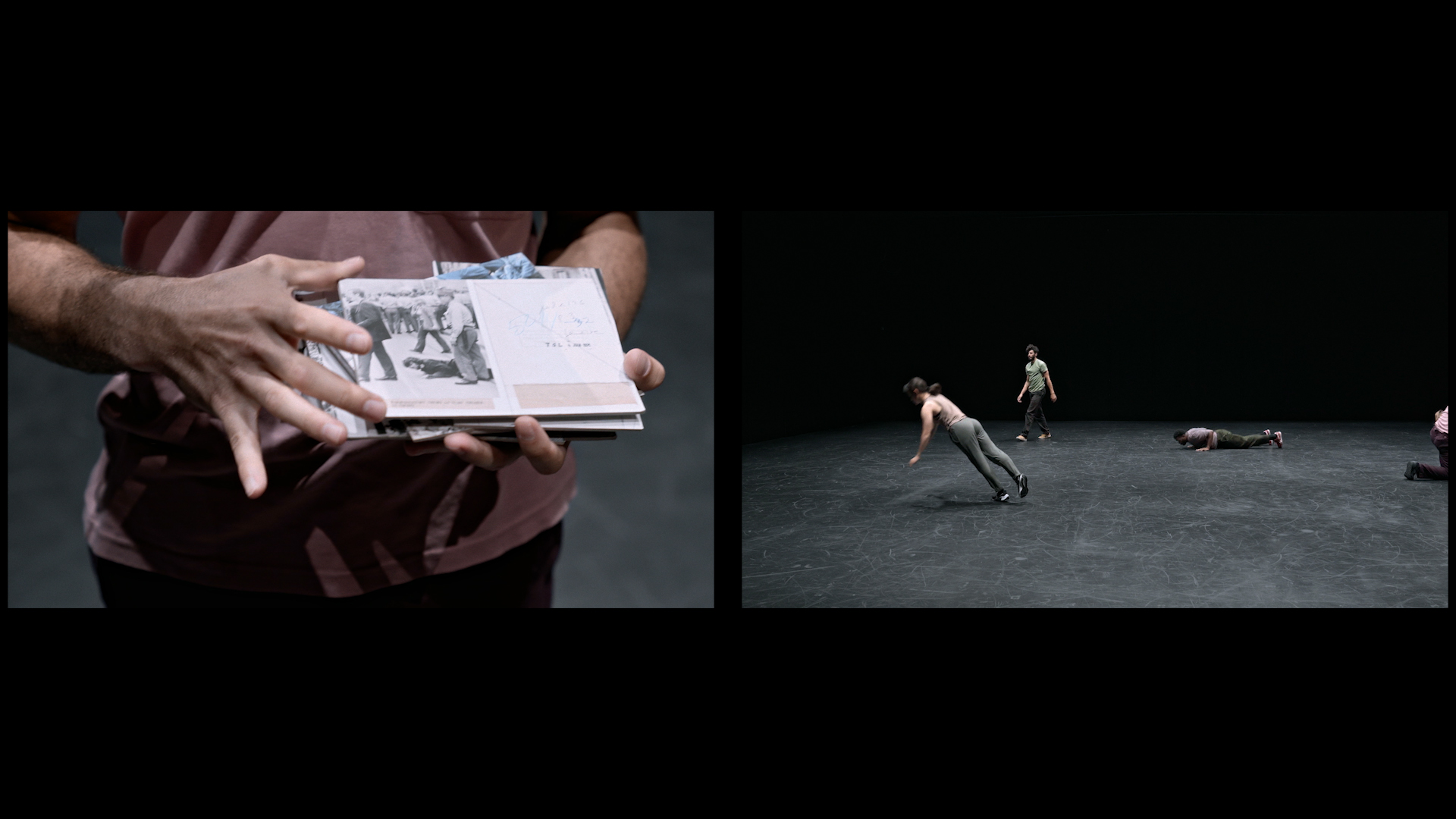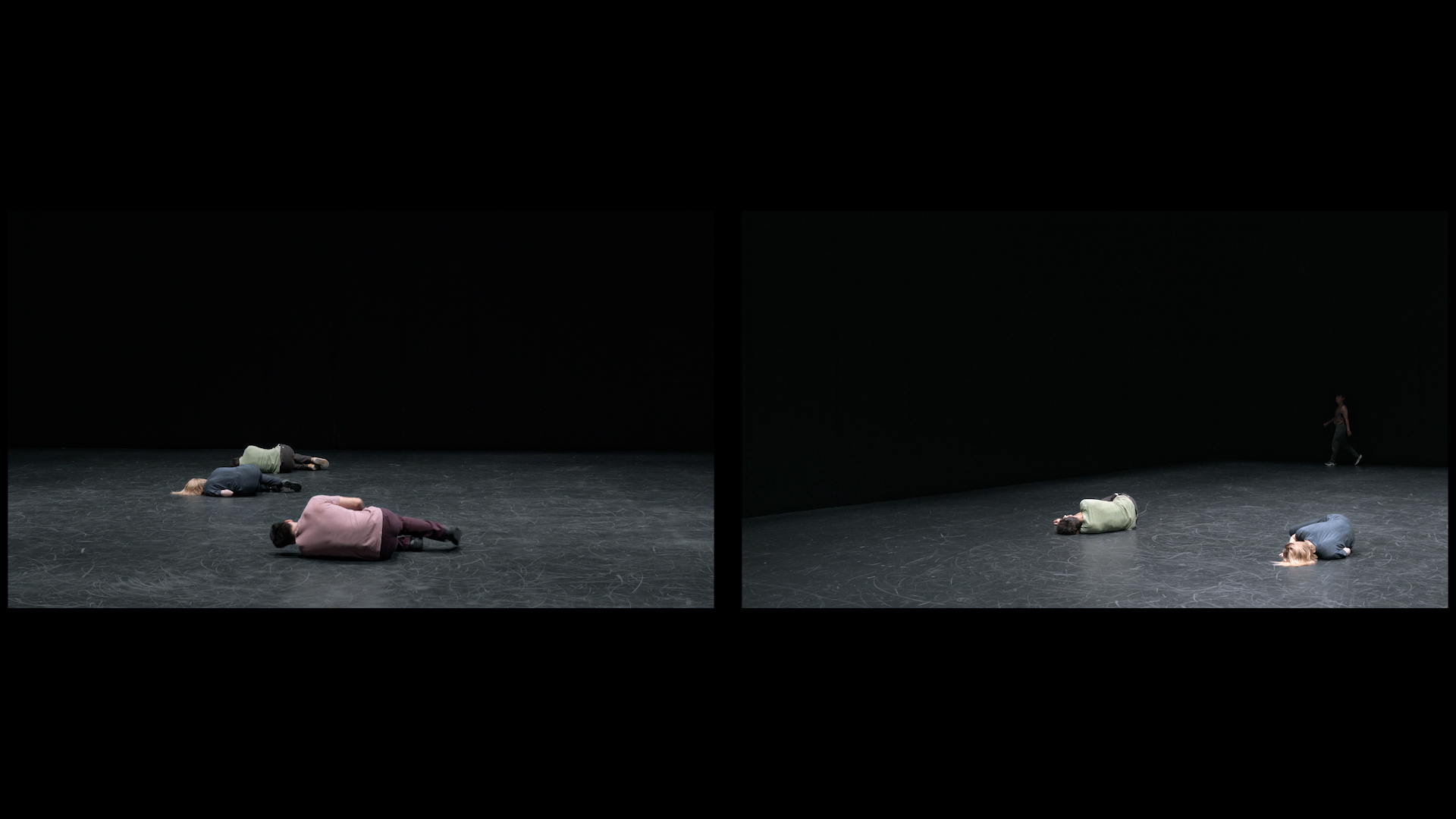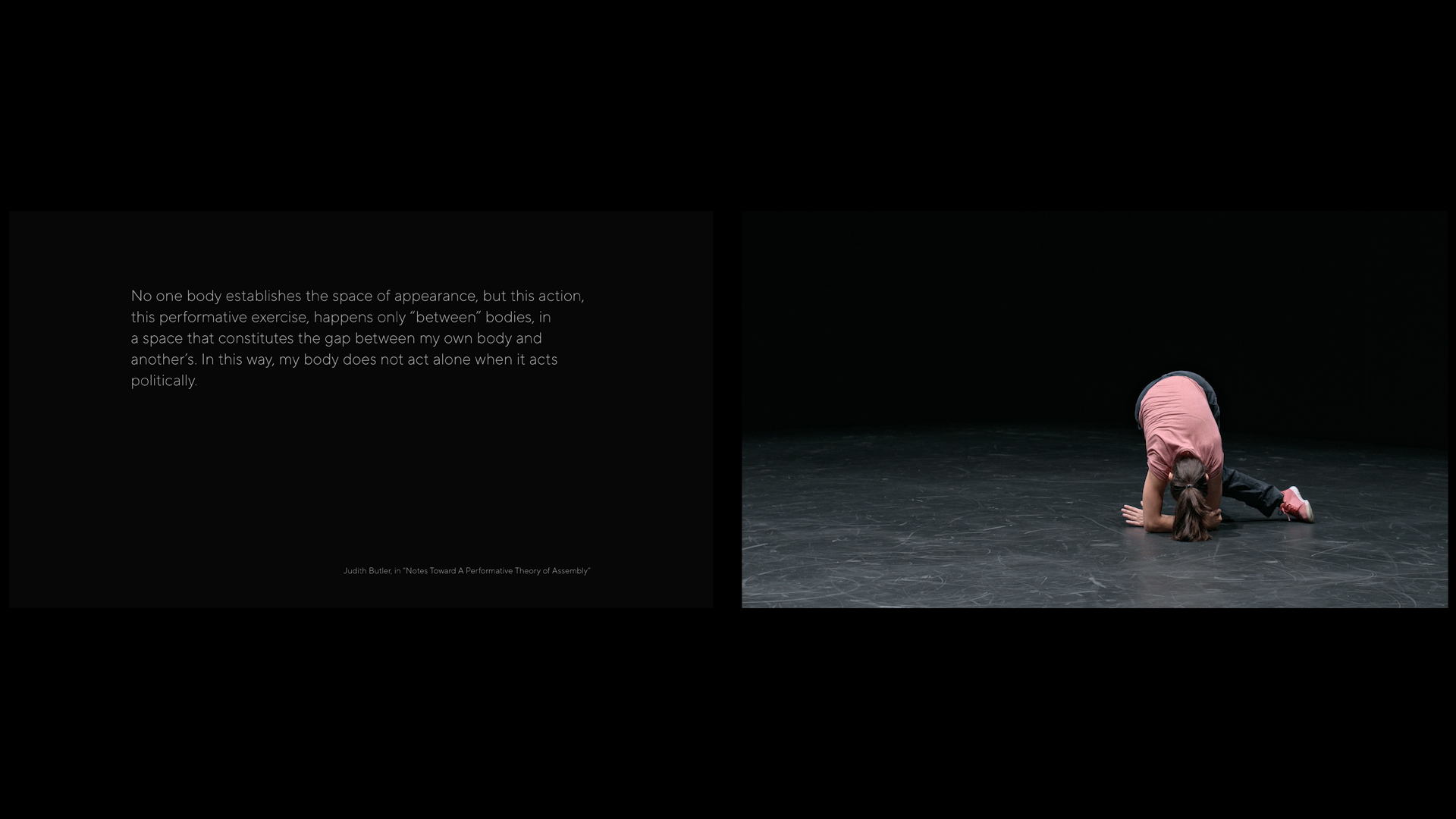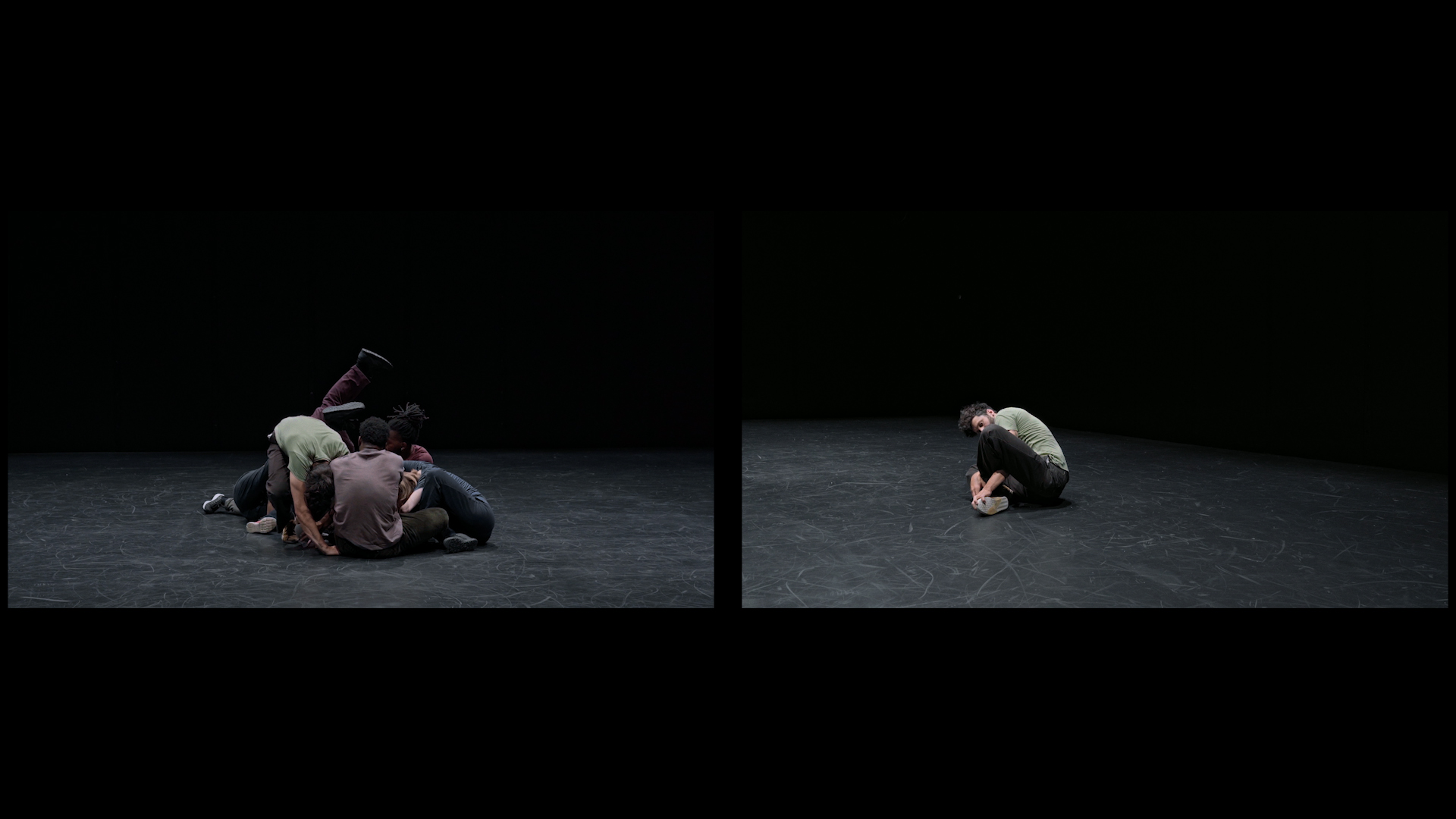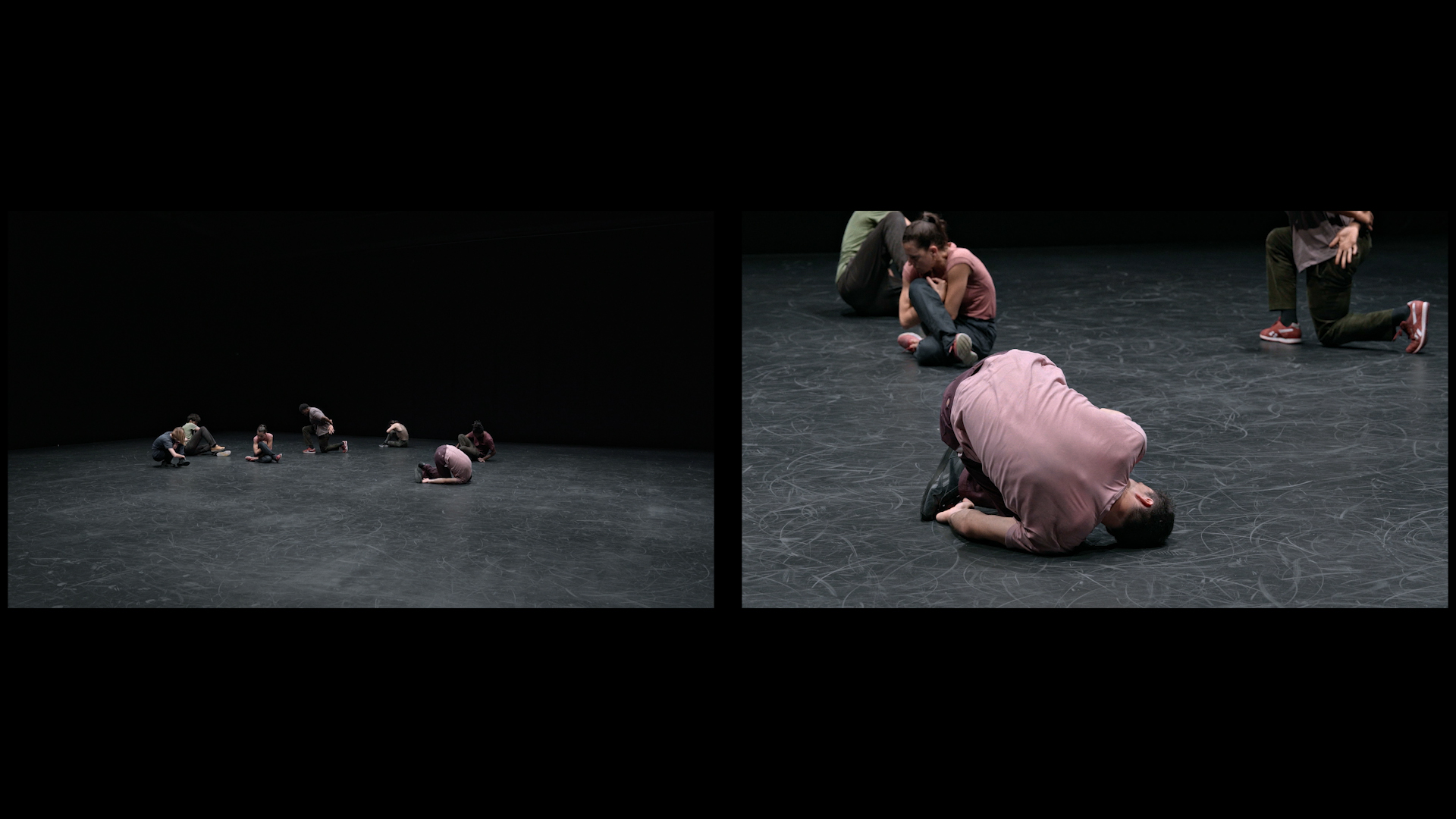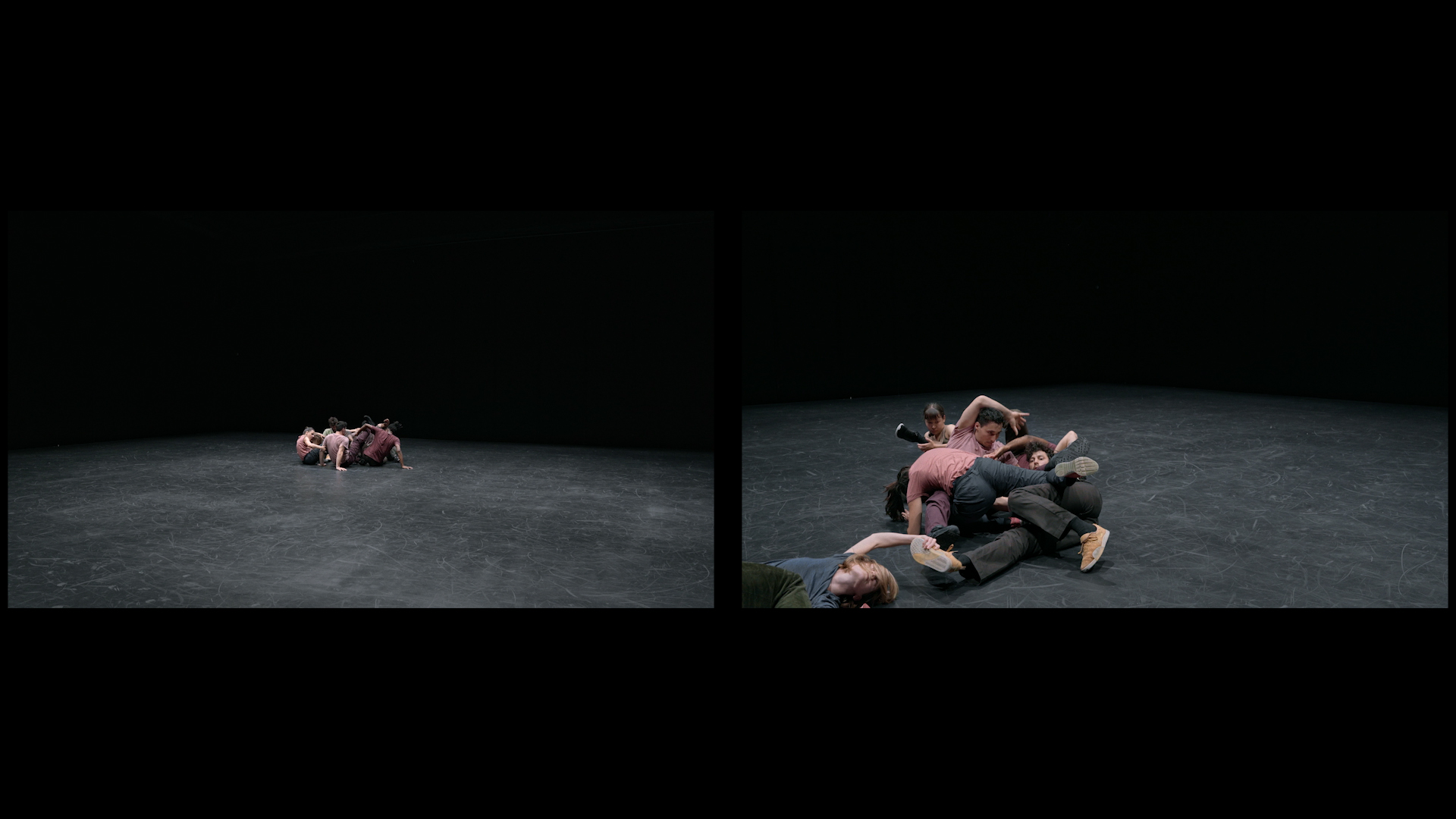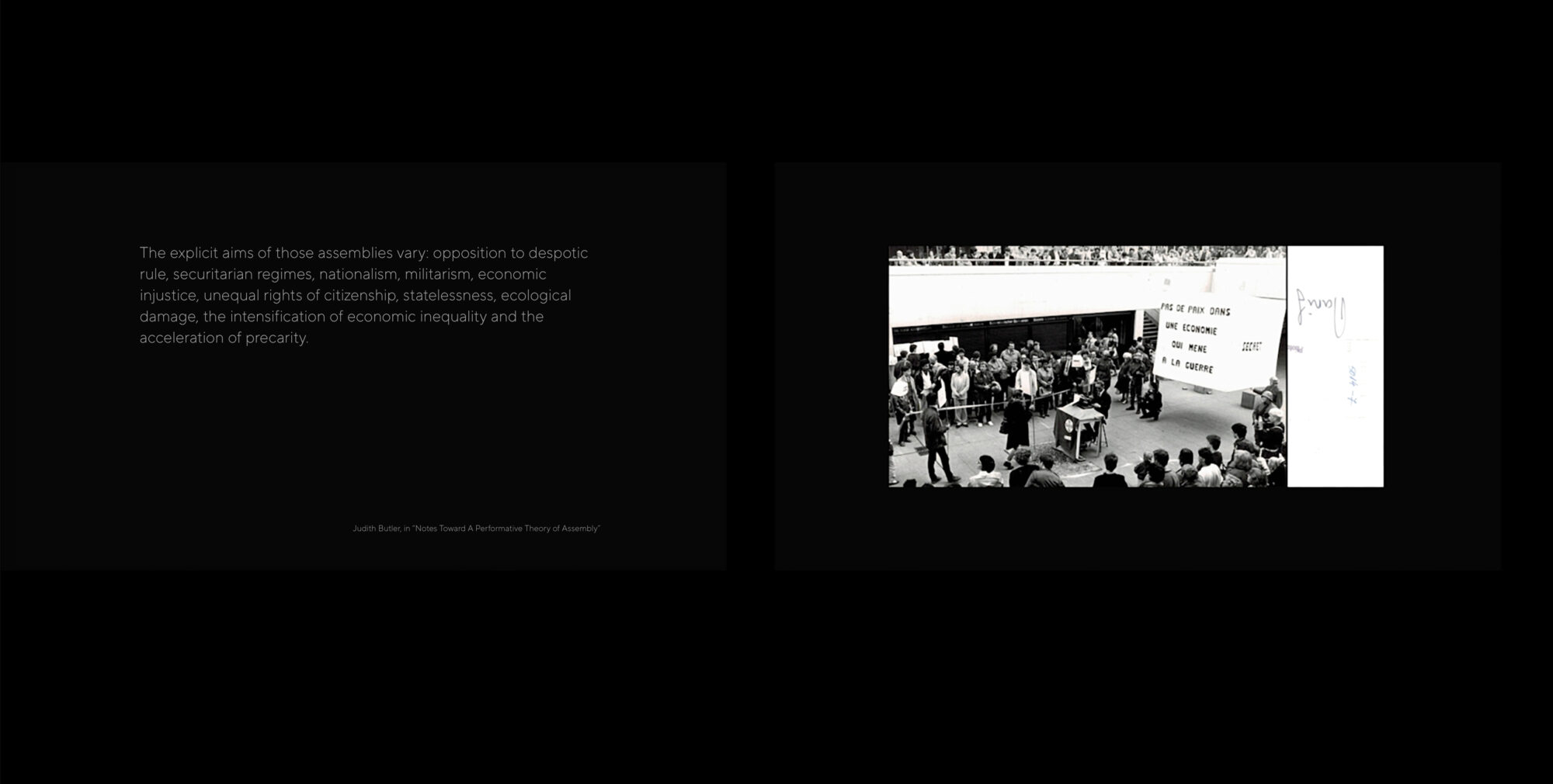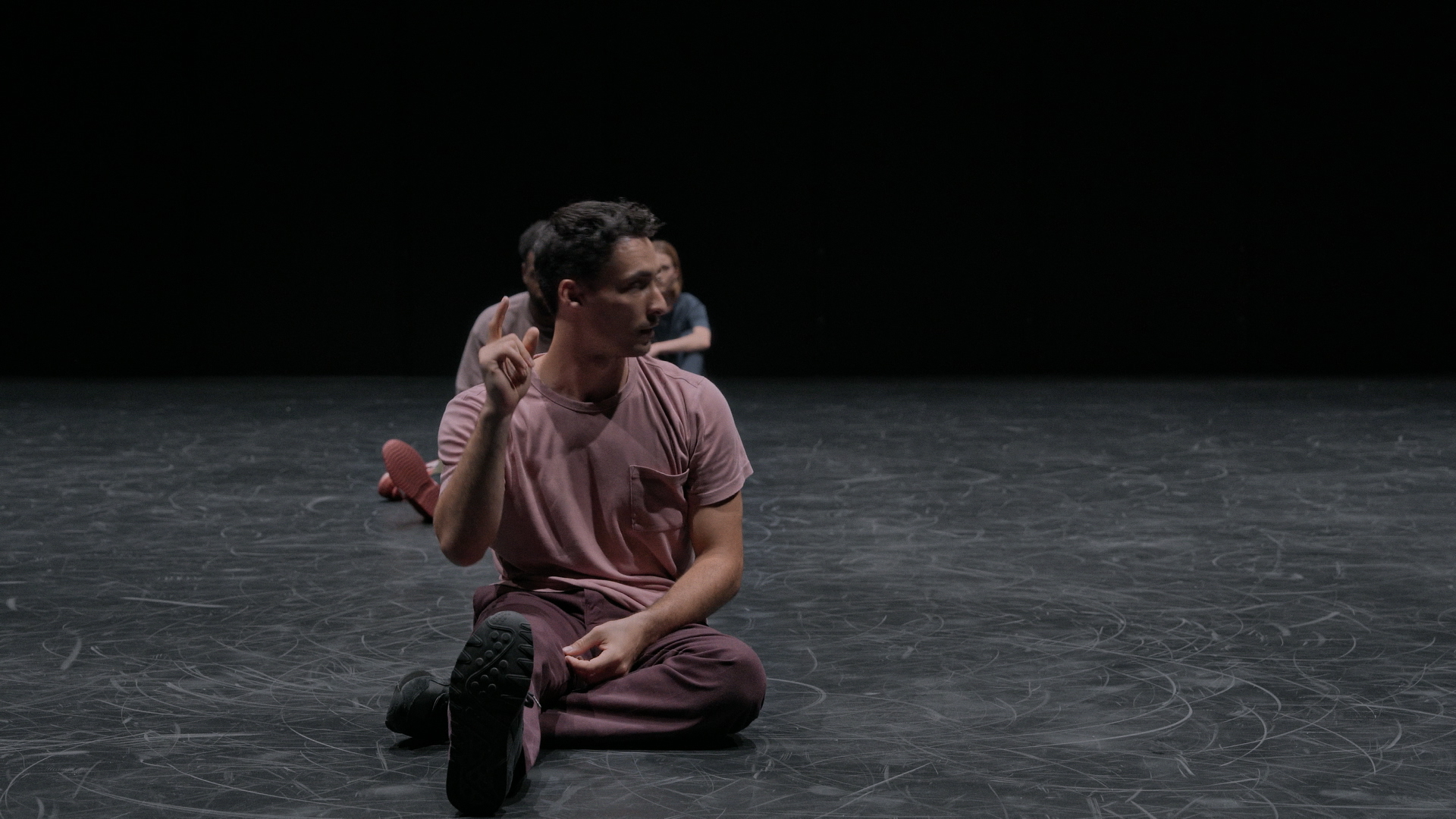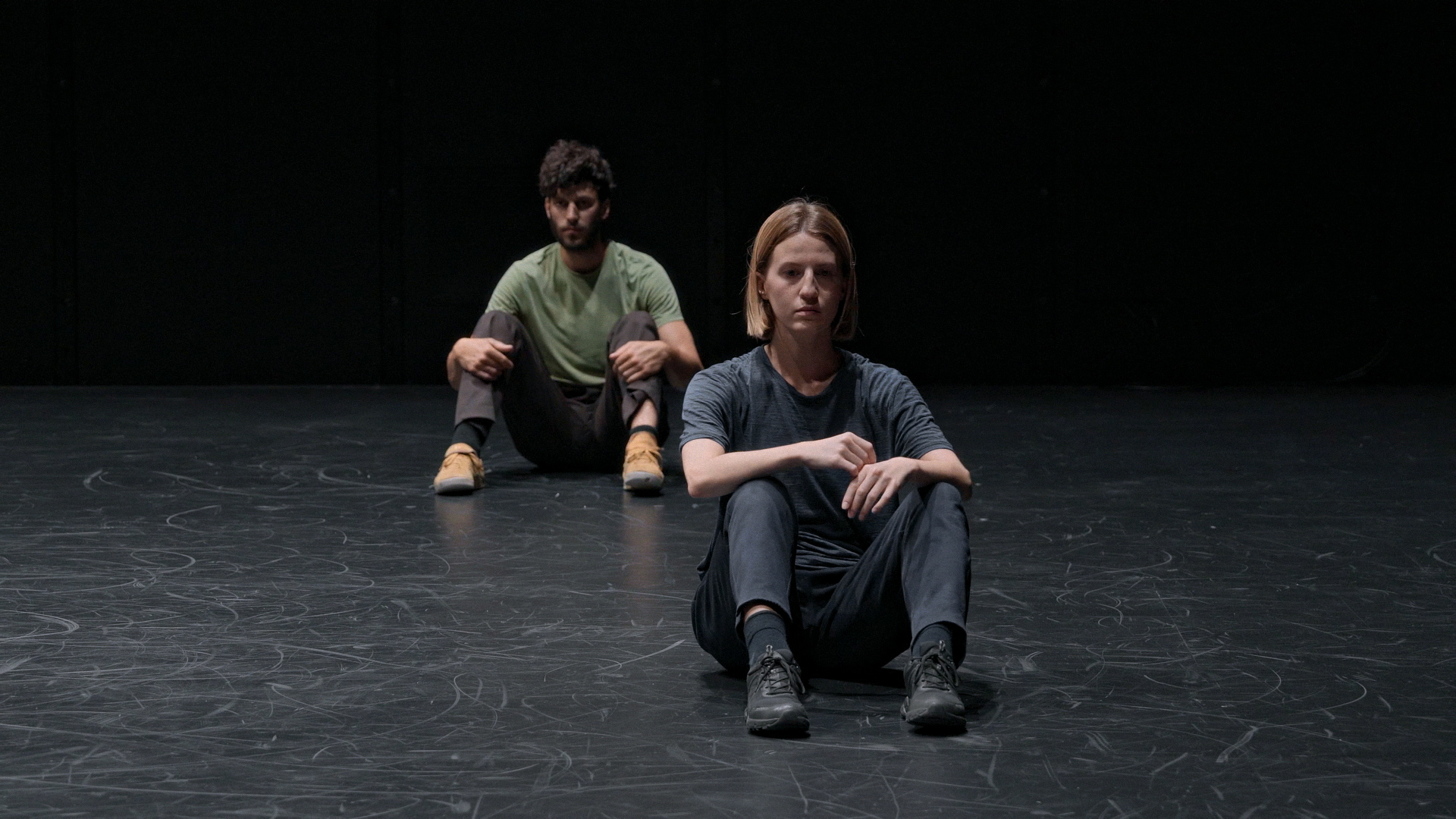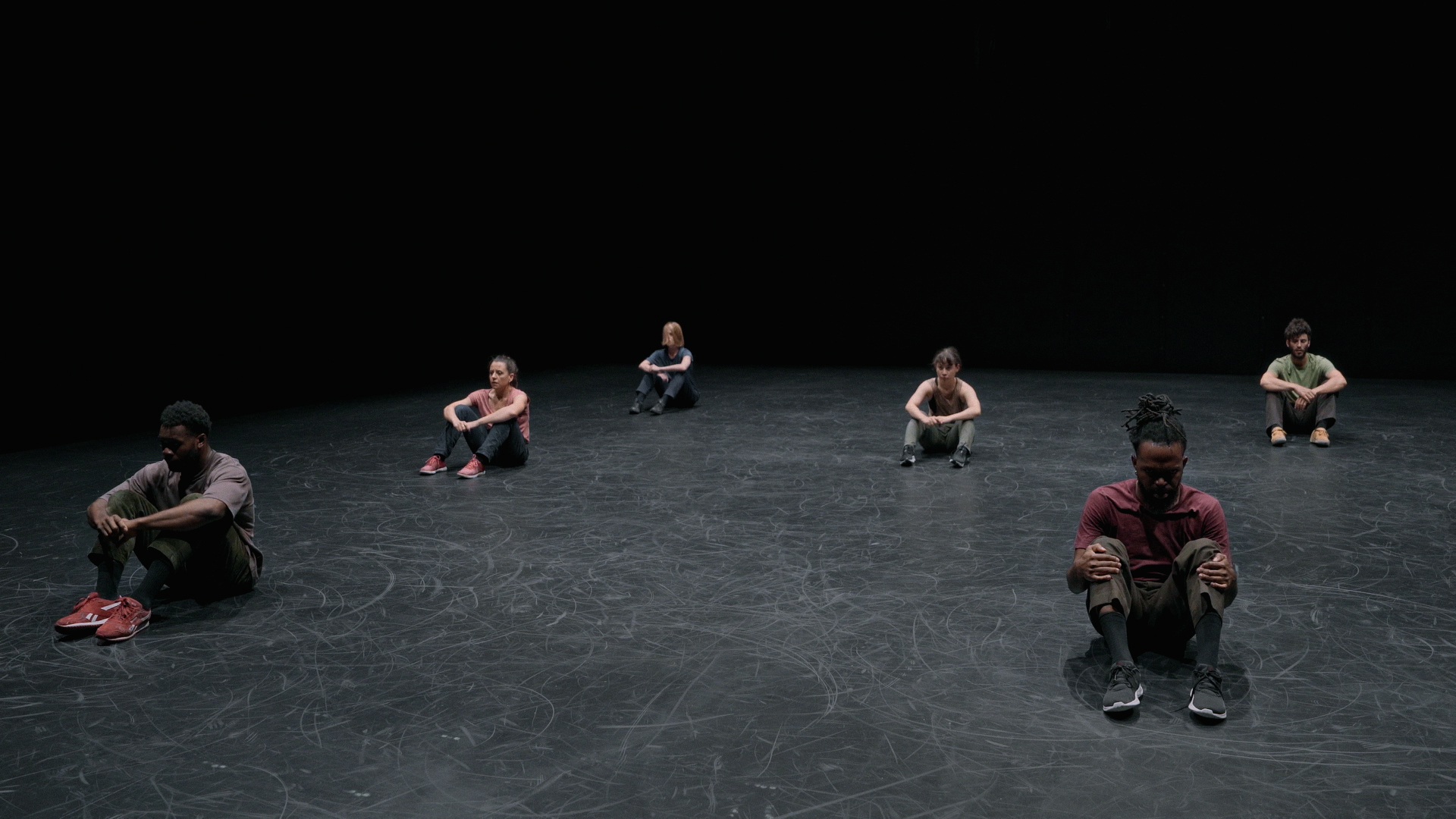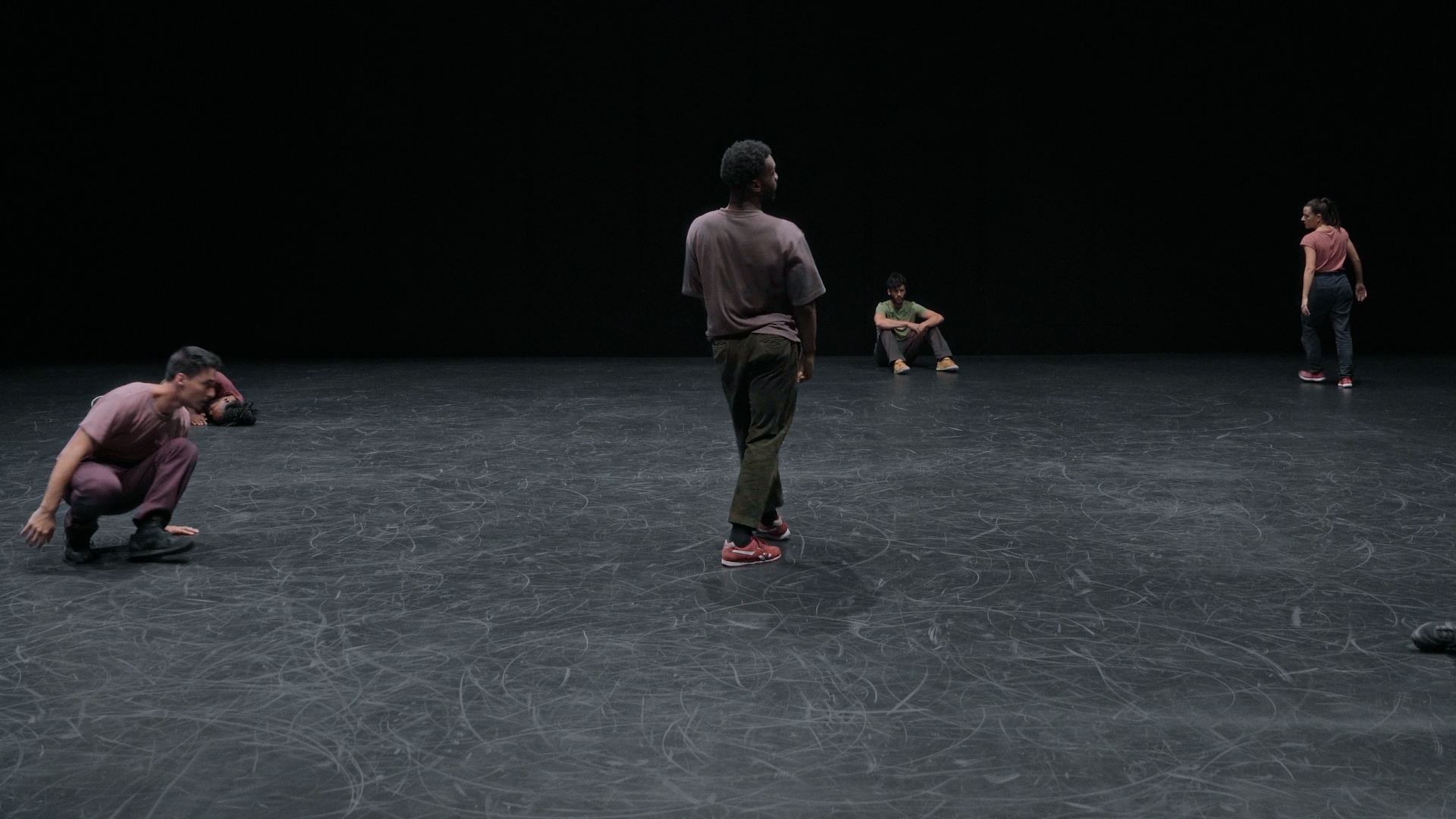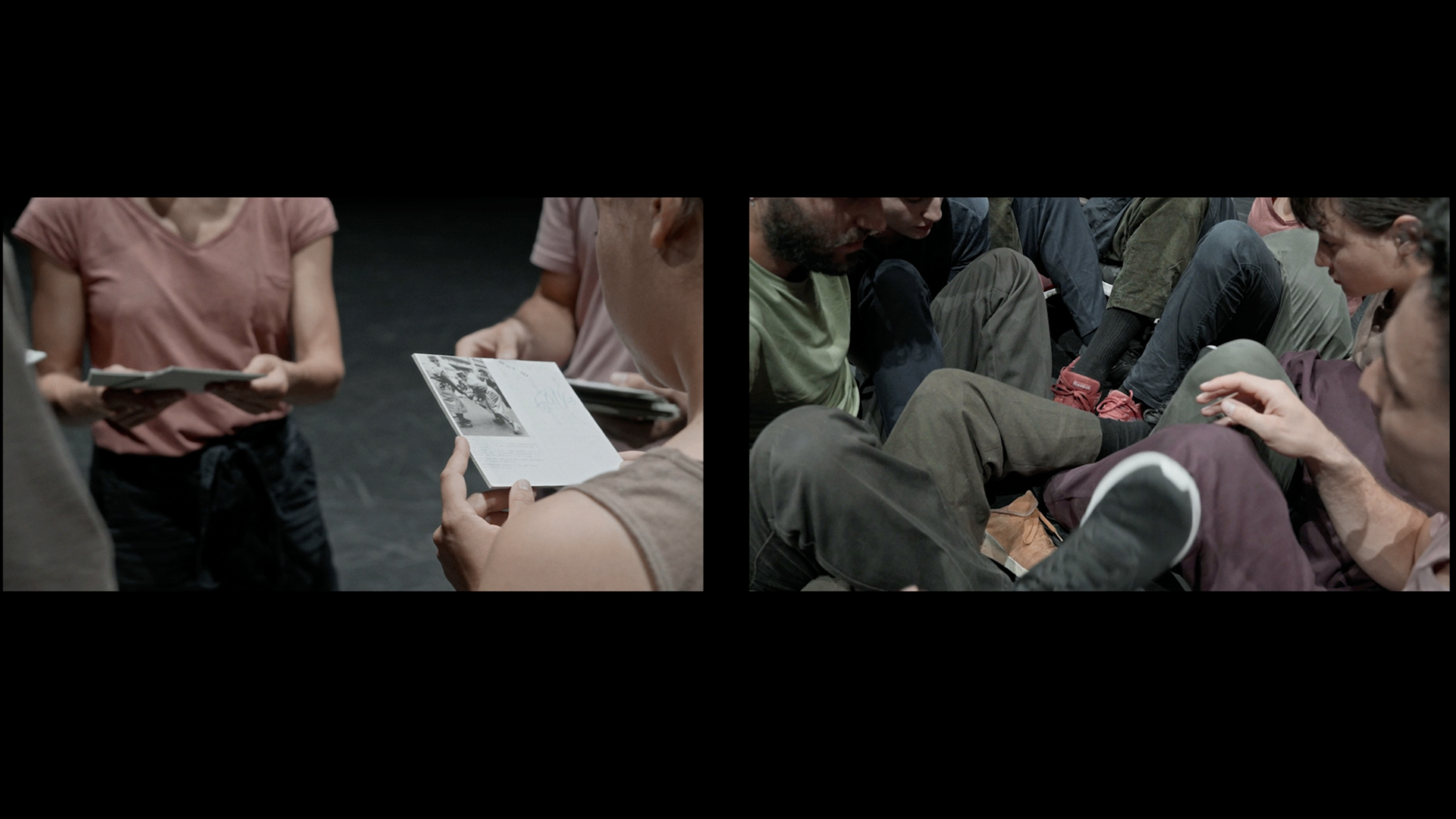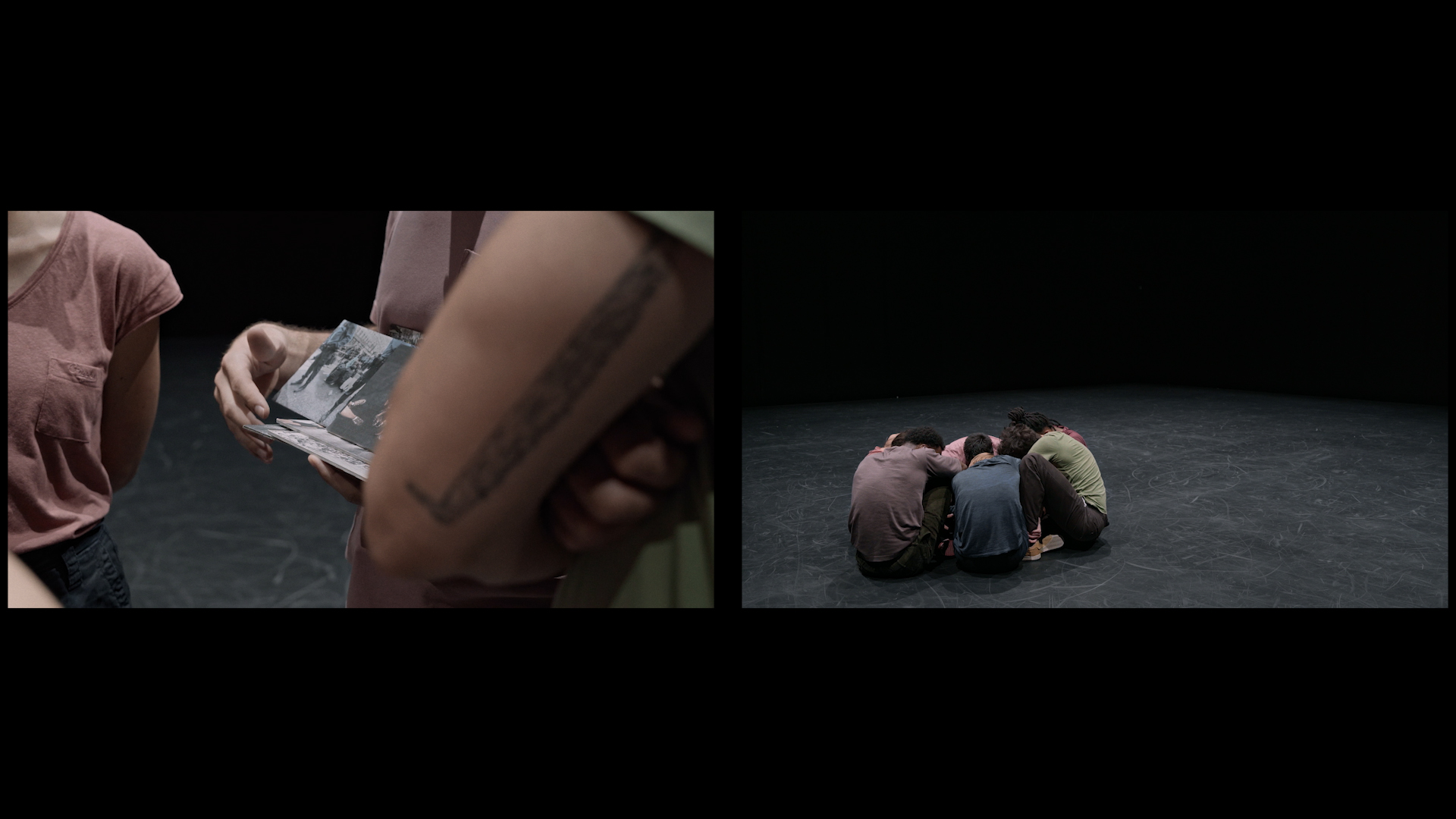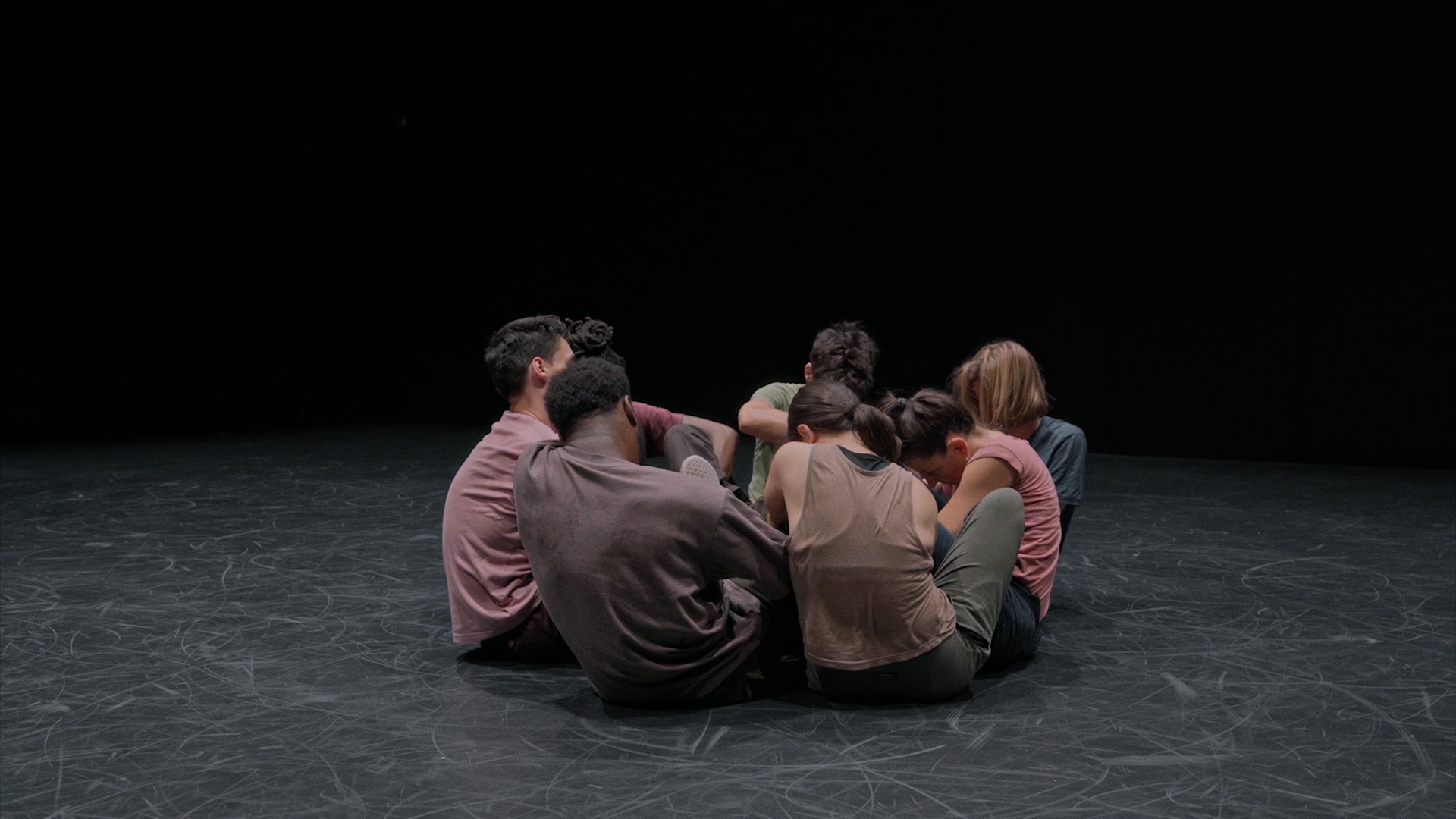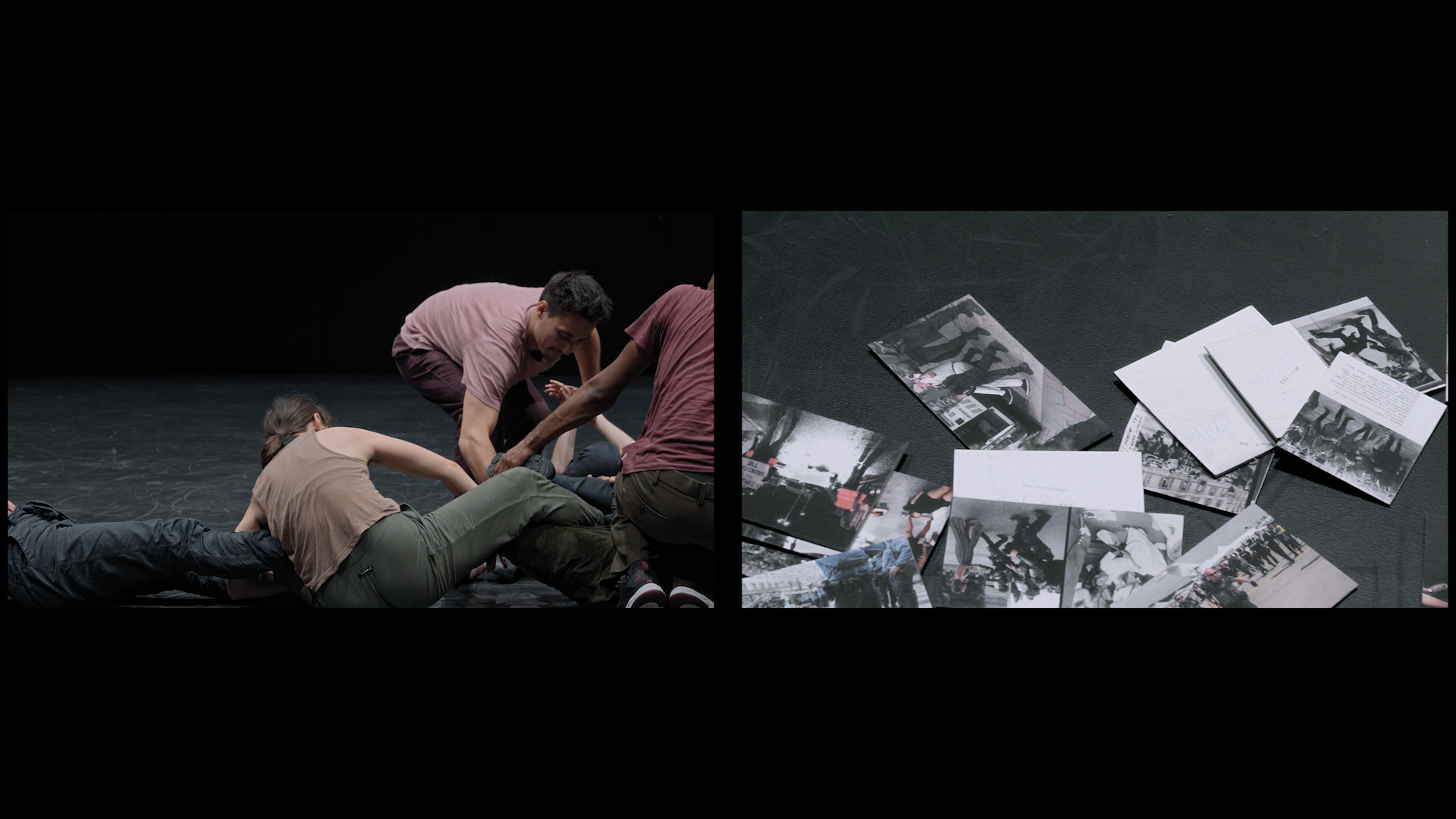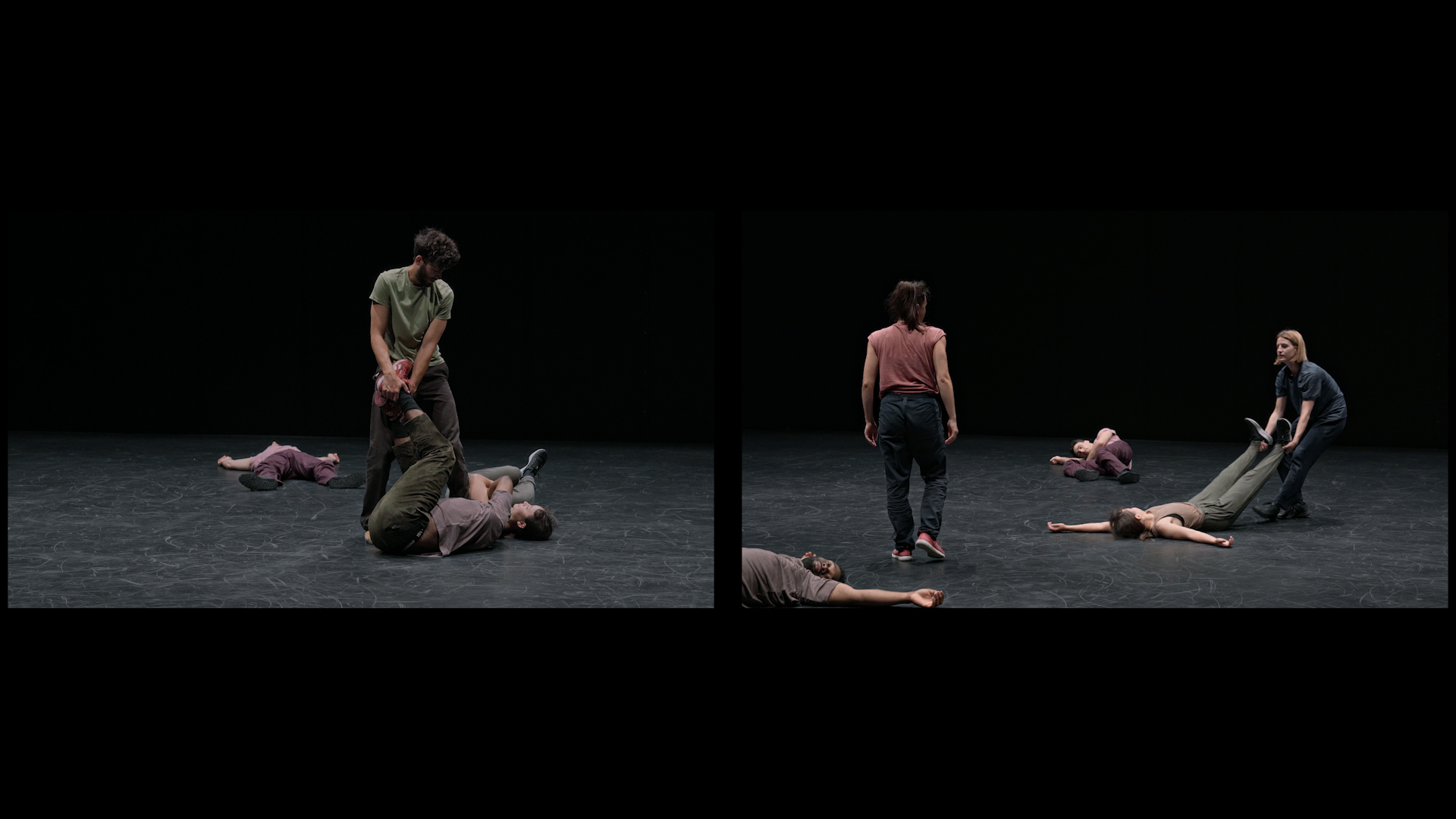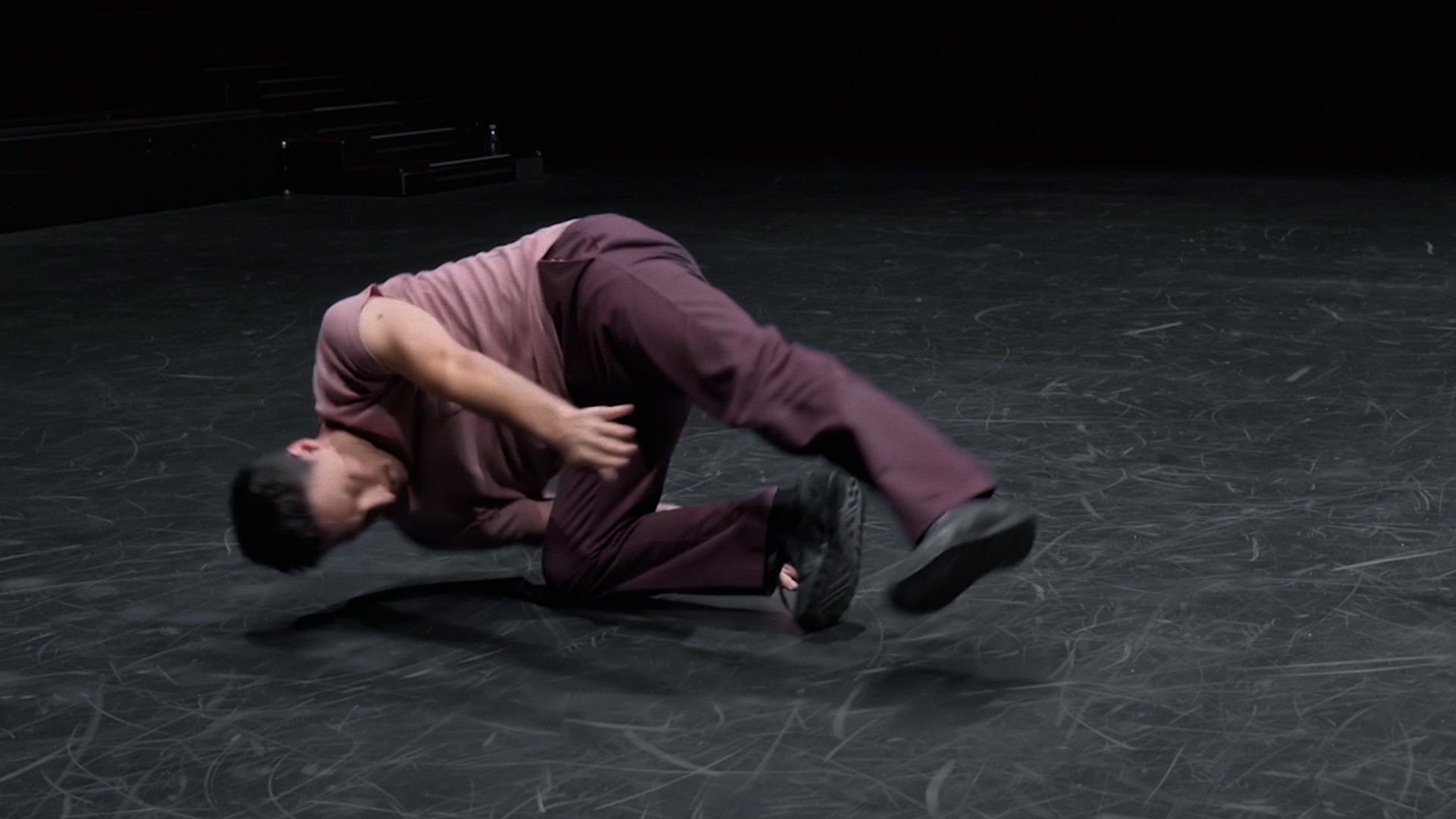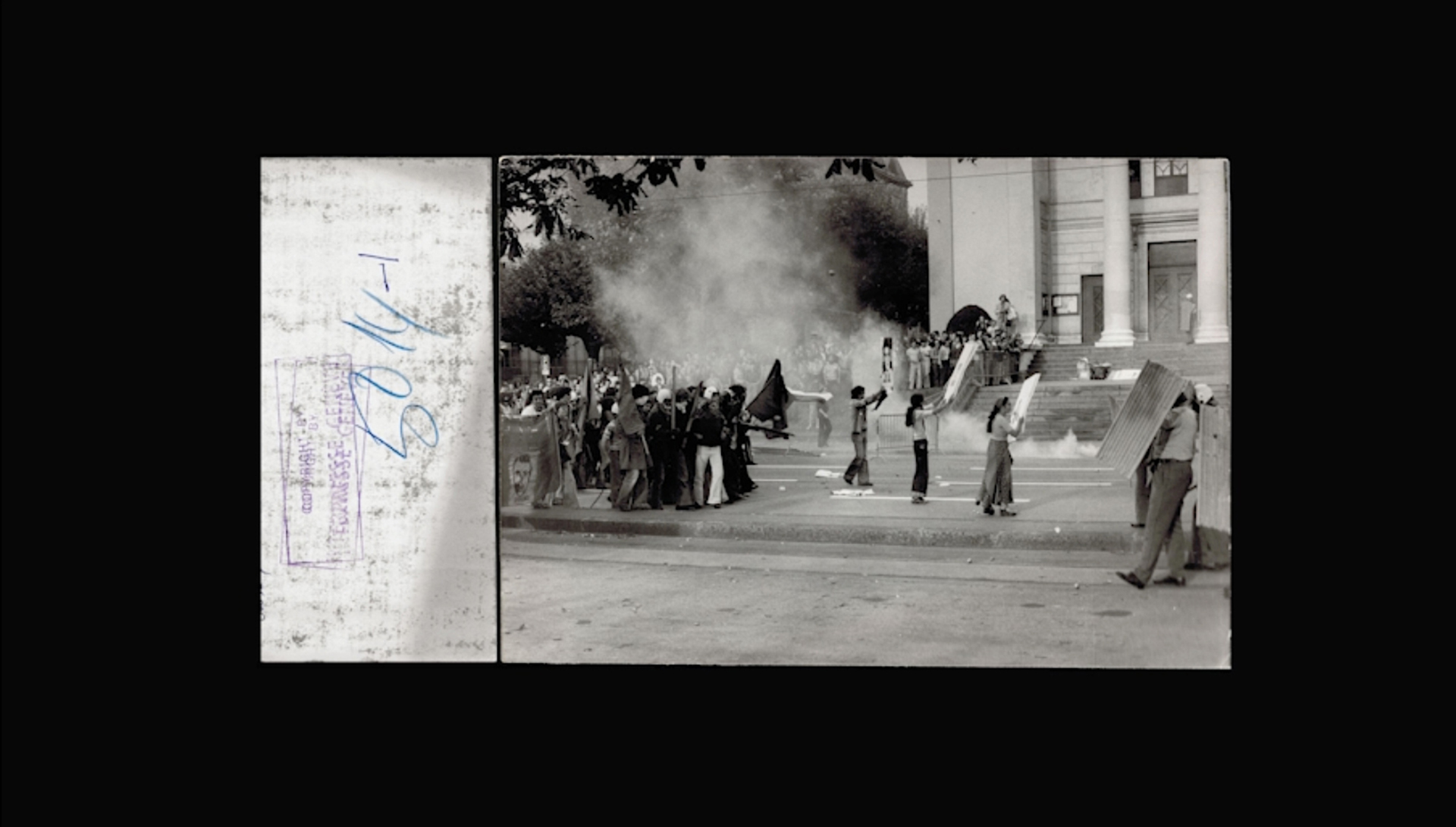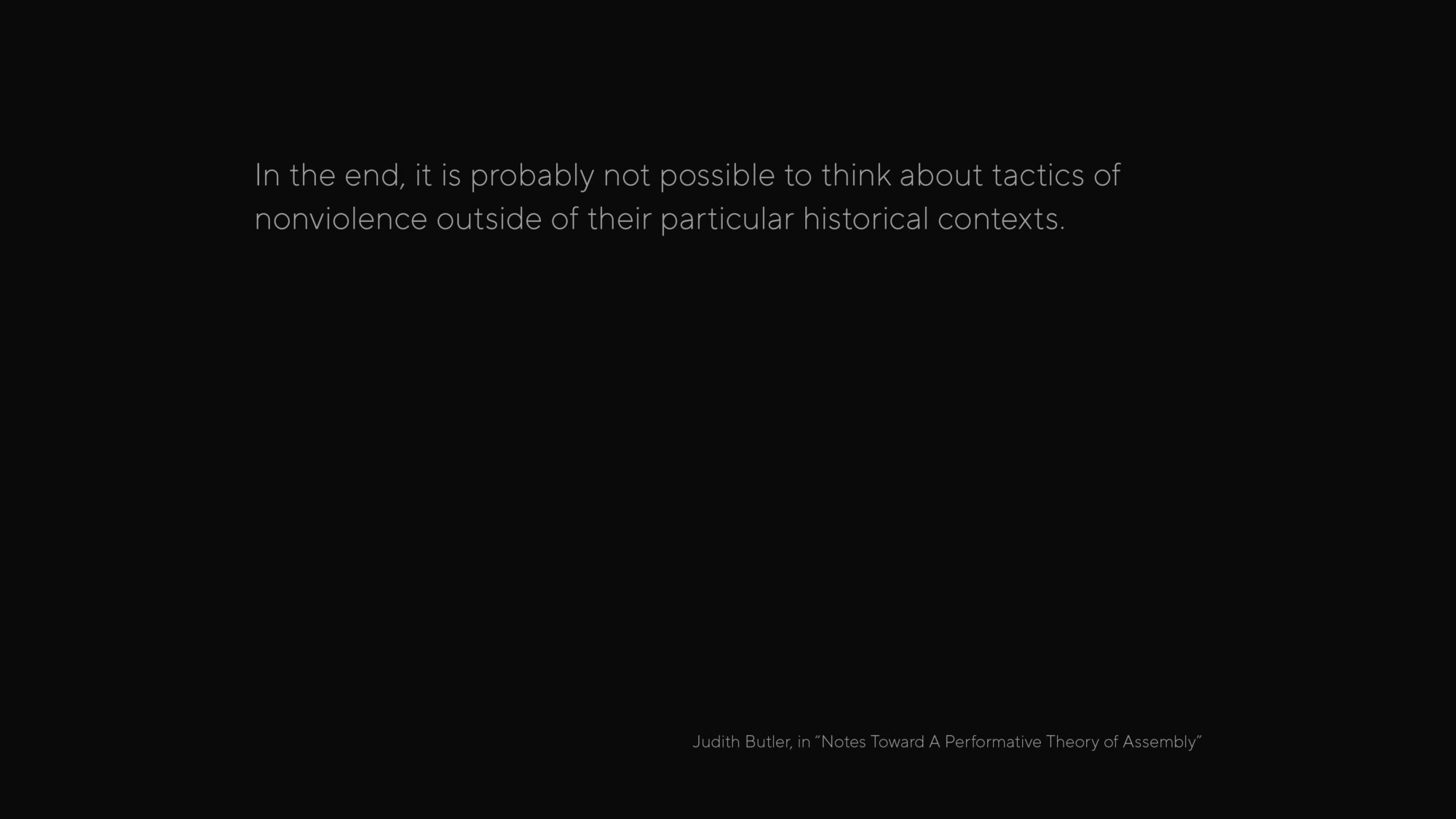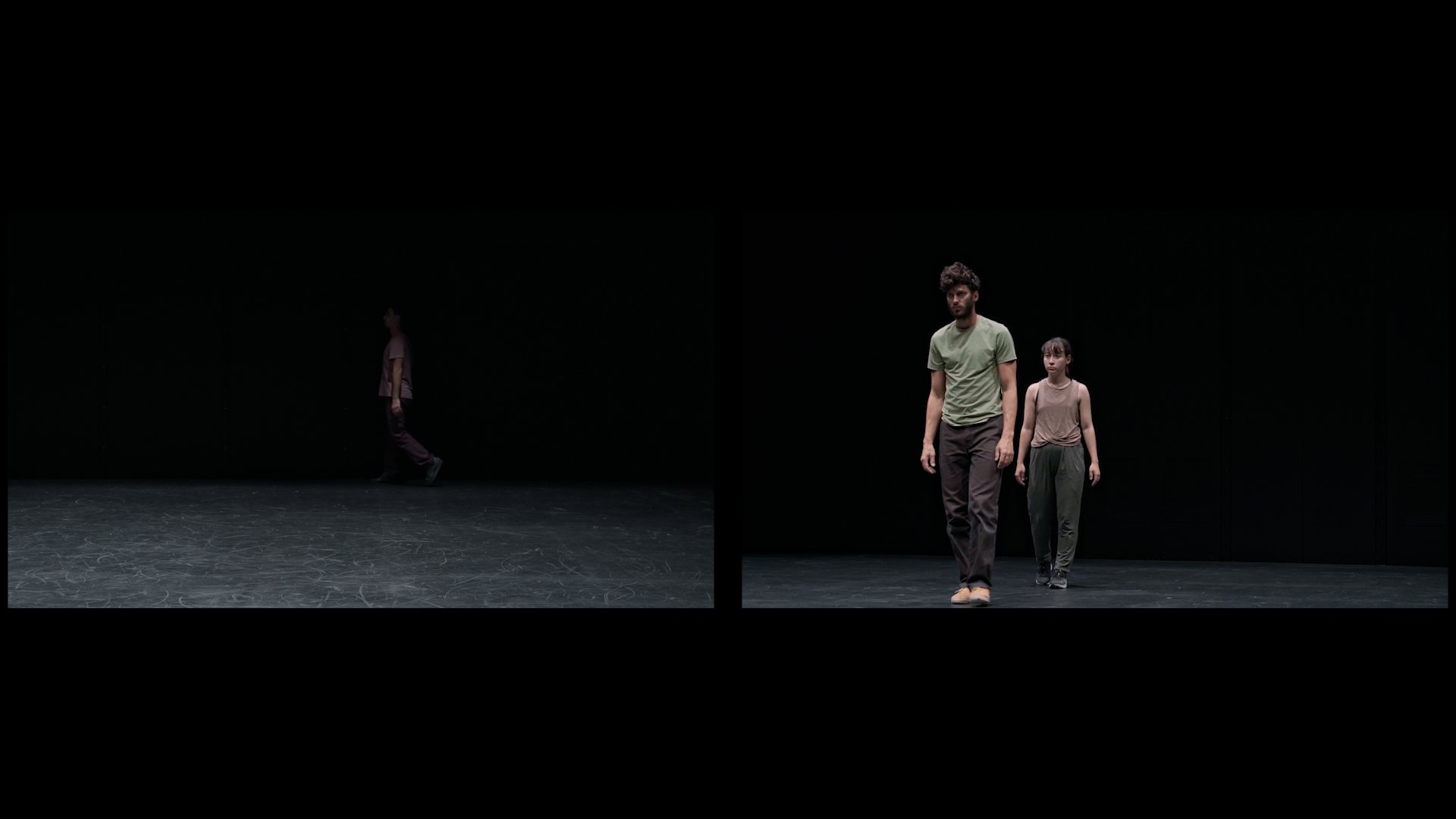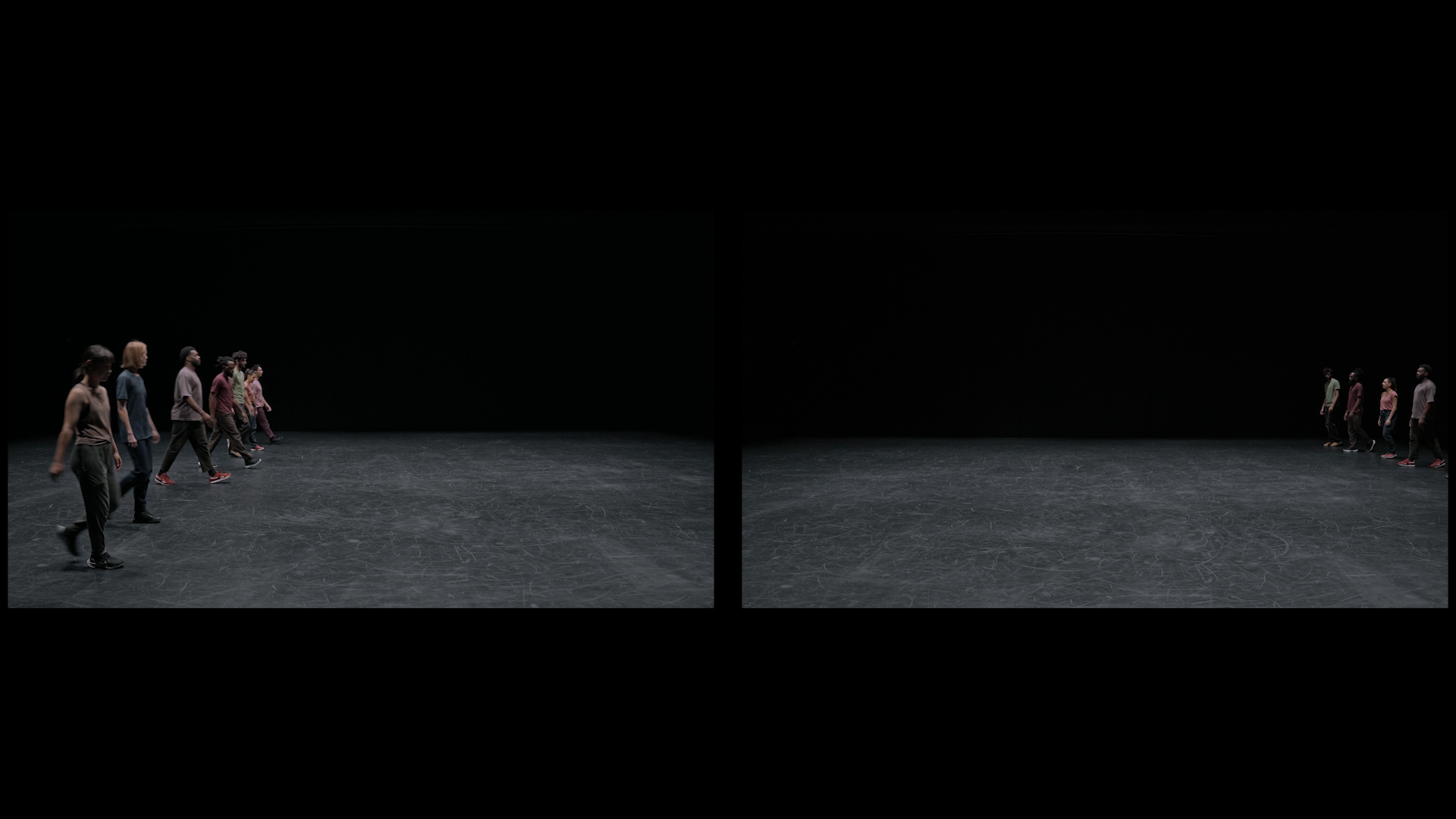Installation / 2 Canaux vidéo / 20min15’’ / 2024
L’espace public constitue la zone de départ pour « Nous n’avons pas besoin de nous connaître à l’avance », une installation vidéo qui alterne des moments de performance dansée, des images d’archives et des citations textuelles. Un essai pour articuler la performativité des corps dans cette zone politique que représente l’espace public. Pour ce projet, j’ai utilisé des images extraites de l’ « Archives contestataires » de Genève, représentant des personnes qui occupent l’espace public pour débattre, et pour rendre visible la protestation et la résistance. La rue, l’espace public, est par définition un lieu de négociation permanente et la pierre angulaire d’une démocratie. Une démocratie qui met à l’épreuve sa légitimité non seulement par sa capacité à faire vivre les mouvements de contestation, mais aussi par ce frottement visible qu’elle laisse – ou non –exister dans les espaces collectifs.
Pour donner voix à ces questions sur la politique de l’espace public et la contestation, j’emprunte des extraits de textes de la philosophe Judith Butler de « Notes Toward a Performative Theory of Assembly » (Harvard University Press).
À partir de ce matériel visuel et littéraire, j’ai développé, en collaboration avec le danseur et chorégraphe Cédric Gagneur, des mouvements et chorégraphies pour un groupe de sept danseuses et danseurs. Le processus est central : Comment ces professionnel·le·s de la danse vont-iels décoder et réinterpréter les réalités politiques documentées dans les archives et les textes ? Comment vont iels re-raconter les stratégies des corps qui s’entrelacent, s’effondrent, glissent et deviennent lourds, pour devenir un corps collectif explorant des positions de résistance ?
Ces chorégraphies processuelles visent à traduire et à incarner les questions soulevées par les images d’archives et les textes de Judith Butler. Ces fragments tissés dans « Nous n’avons pas besoin de nous connaître à l’avance » pourraient également servir de manuel pour occuper un espace public précaire– un espace politique souvent menacé de disparition.
Extraits de « Notes Toward a Performative Theory of Assembly » de Judith Butler
« Le « nous » est mis en acte par le rassemblement de corps pluriels, persistants et agissants, qui revendiquent l’accès à une sphère publique qui nous a abandonnés. »
« Aucun corps n’établit seul l’espace de l’apparaître ; cette action, cet exercice performatif, ne se produit qu’ « entre » des corps, dans un espace qui constitue l’écart entre mon corps et le corps d’autrui. De cette façon, mon corps n’agit pas seul lorsqu’il agit politiquement. »
« Le pouvoir de se mouvoir ou de rester immobile, de parler et d’agir, appartient au rassemblement avant et en plus des droits qu’un gouvernement peut décider d’octroyer et de protéger. »
« Dans notre réflexion sur le rassemblement public, nous devons réfléchir également sur le pouvoir policier qui soit le laisse avoir lieu, soit l’en empêche, et nous devons considérer avec une grande vigilance le moment où l’État décide d’attaquer les personnes qu’il est censé représenter. »
Installation / 2 Kanal Video / 20min15’’ / 2024
Der öffentliche Raum bildet den Ausgangsort für „We do not have to know each other in advance“, eine Videoinstallation, die Momente aus Tanzperformances, Archivmaterial und Textzitaten miteinander verwebt. Ein Essay, um die Performativität von Körpern in dieser politischen Zone, die der öffentliche Raum darstellt, zu artikulieren. Für dieses Projekt habe ich Bildematerial aus dem „Archives des Contestataires Genève“ verwendet, Archivbilder von Menschen, die den öffentlichen Raum beanspruchen um zu debattieren, und um Protest und Widerstand sichtbar zu machen. Die Strasse, der öffentliche Raum, ist per Definition ein Ort permanenter Aushandlung und bildet ein Fundament der Demokratie. Eine Demokratie, die ihre Legitimität nicht nur an ihrer Fähigkeit testet, wie sie Protestbewegungen Raum gibt, sondern auch an der sichtbaren Spannung, die sie in diesem kollektiven Raum bestehen lässt, oder nicht.
Um diese Fragen zur Politik des öffentlichen Raums und des Widerstands in eine Stimme zu fassen, greife ich auf Textauszüge der Philosophin Judith Butler aus „Notes Toward a Performative Theory of Assembly“ (Harvard University Press) zurück. Mit diesem visuellen und schriftlichen Material entwickelte ich gemeinsam mit dem Tänzer und Choreografen Cédric Gagneur Bewegungen und Choreographien für eine Gruppe von sieben Tänzerinnen und Tänzern. Im Zentrum steht der Prozess; wie werden diese Tanzschaffenden die politischen Realitäten, die in den Archiven und Texten dokumentiert sind, entschlüsseln und bearbeiten? Wie werden sie diese Strategien von Körpern, die sich ineinander verflechten, zusammenfallen, gleiten und schwer werden, individuelle Körper die sich zu einem kollektiven Körper formen und gemeinsam Positionen des Widerstands proben, anwenden und erzählen ? Diese prozessorientierten Choreografien sollen die durch die Archivbilder und Judith Butlers Texte aufgeworfenen Fragen in eine Körperlichkeit übersetzen.
Die in „We do not have to know each other in advance“ verflochtenen Fragmente könnten zugleich als Manual für einen prekären öffentlichen Raum dienen – einen politischen Raum, der seit geraumer Zeit von seinem Verschwinden bedroht wird.
Auszüge aus „Notes Toward a Performative Theory of Assembly“ von Judith Butler
“The “we” is enacted by the assembly of bodies, plural, persisting, acting, and laying claim to a public sphere by which one has been abandoned.”
“No one body establishes the space of appearance, but this action, this performative exercise, happens only “between” bodies, in a space that constitutes the gap between my own body and another’s. In this way, my body does not act alone when it acts politically.”
“The power to move or be still, to speak and to act, belongs to the assembly prior to, and in excess of, whatever rights a particular government decides to confer or to protect.”
“When we think about public assembly, we are always thinking about the police power that either lets it happen or stops it from happening, and we are on guard against the moment in which the state starts to attack the people it is supposed to represent.”
Installation / 2 Channel video / 20min15’’ / 2024
Public space forms the central focus of „We do not have to know each other in advance“ a video installation that intertwines moments from dance performances, archival material, and text excerpts. An essay to articulate the performativity of bodies within this political zone that constitutes public space. For this project, I used visual material from the „Archives des Contestataires Genève“ depicting people occupying public space, debating, and visualising protest and resistance. The street, as public space, is by definition a zone of constant negotiation and a foundation of democracy. A democracy measures its legitimacy not only by how it provides space for protest movements, but also by the visible tensions it permits—or does not permit—to exist in its collective spaces.
To propose a voice to these questions about the politics of public space and resistance, I draw on excerpts from the philosopher Judith Butler’s Notes Toward a Performative Theory of Assembly (Harvard University Press). Using these visual and textual materials as a foundation, I collaborated with dancer and choreographer Cédric Gagneur to develop movements and choreographies for a group of dancers. The process itself is central: how will these dancers decode, interpret, and engage with the political realities documented in the archives and texts? How will they embody and convey strategies of intertwining, collapsing, sliding, and becoming heavy—individual bodies merging into a collective one, exploring positions of resistance together? These process-based choreographies aim to translate and to incarnate the questions raised by the archival images and Butler’s texts. The fragments woven into „We do not have to know each other in advance“ could also serve as a manual for a precarious public space—a political space increasingly at risk of disappearing.
Extracts from „Notes Toward a Performative Theory of Assembly“ by Judith Butler
“The “we” is enacted by the assembly of bodies, plural, persisting, acting, and laying claim to a public sphere by which one has been abandoned.”
“No one body establishes the space of appearance, but this action, this performative exercise, happens only “between” bodies, in a space that constitutes the gap between my own body and another’s. In this way, my body does not act alone when it acts politically.”
“The power to move or be still, to speak and to act, belongs to the assembly prior to, and in excess of, whatever rights a particular government decides to confer or to protect.”
“When we think about public assembly, we are always thinking about the police power that either lets it happen or stops it from happening, and we are on guard against the moment in which the state starts to attack the people it is supposed to represent.”
